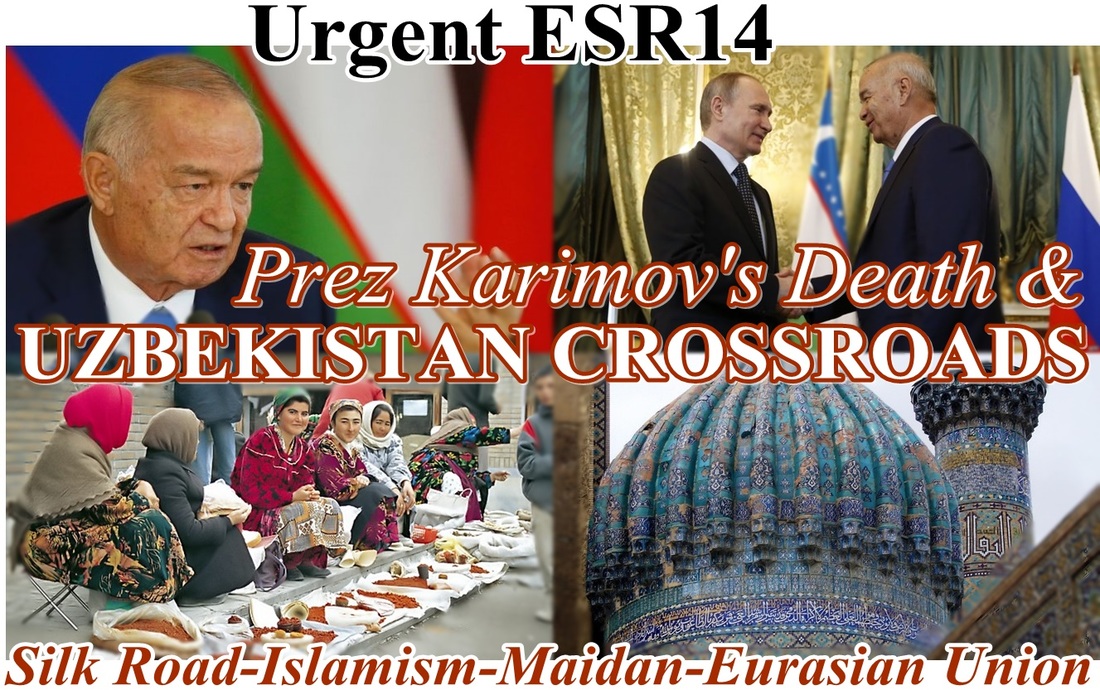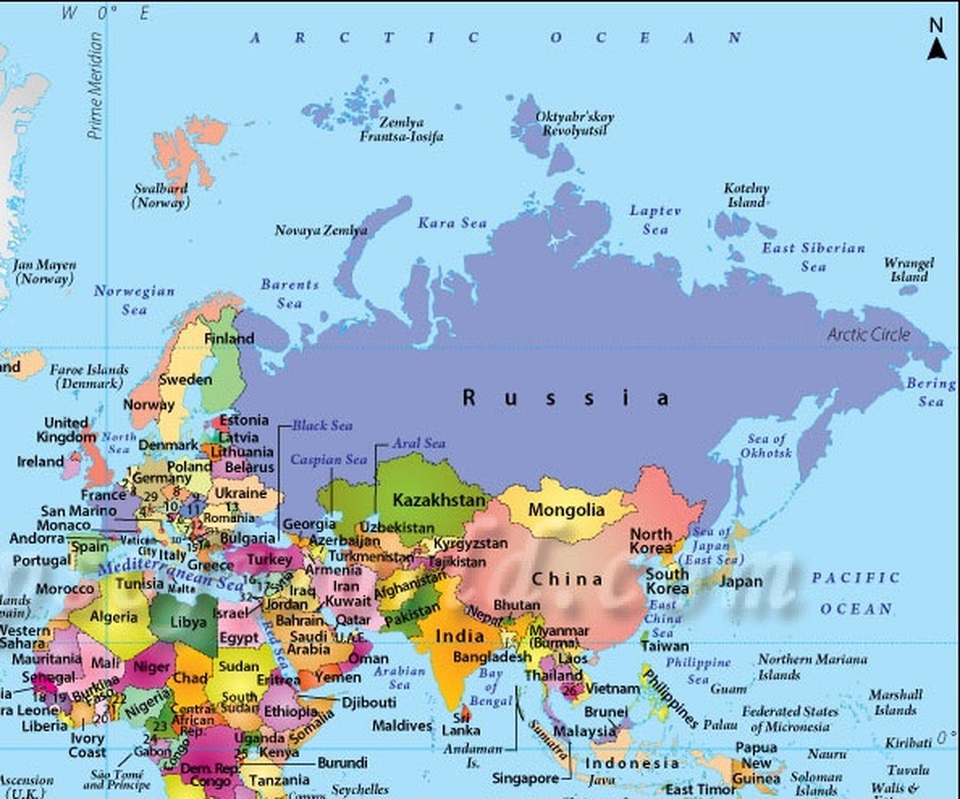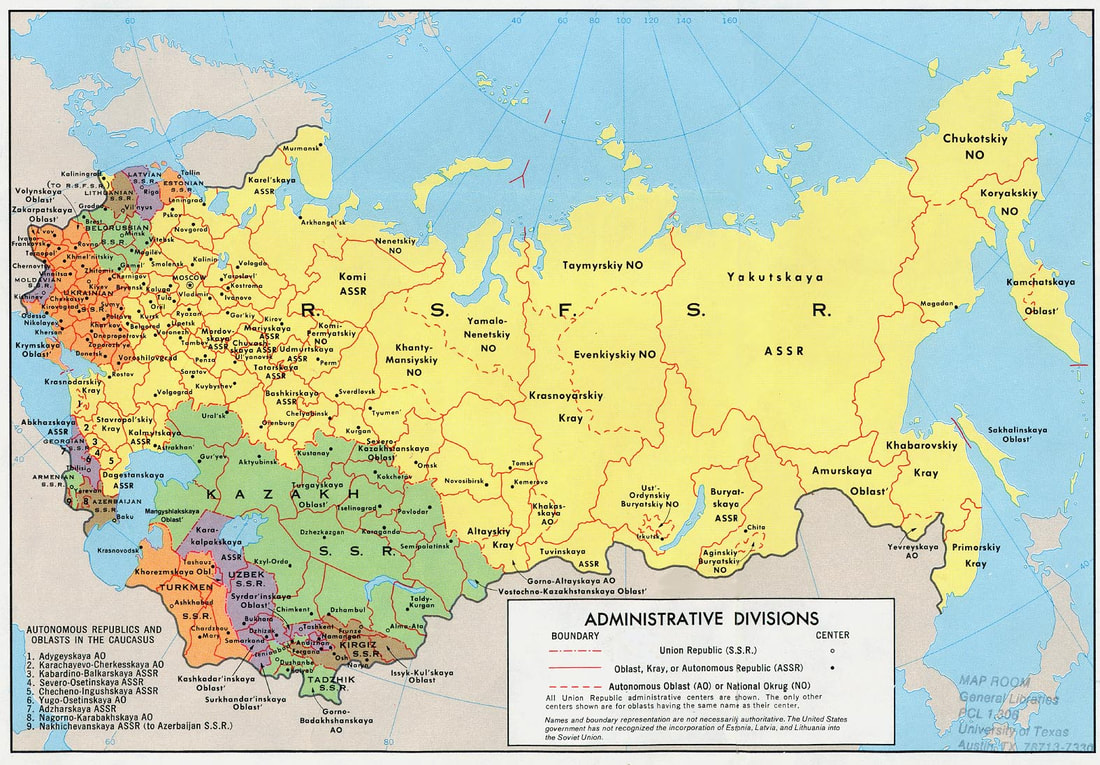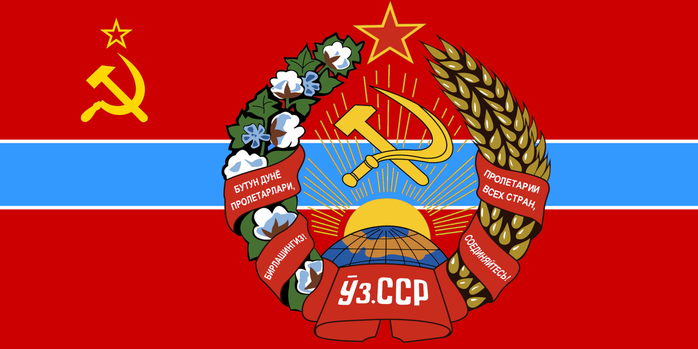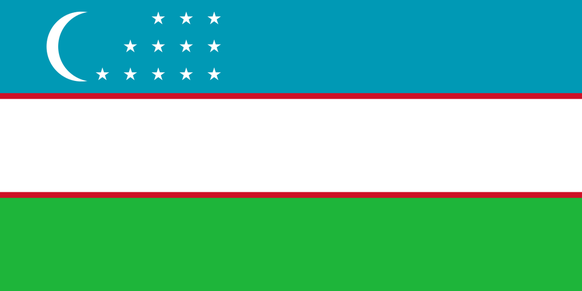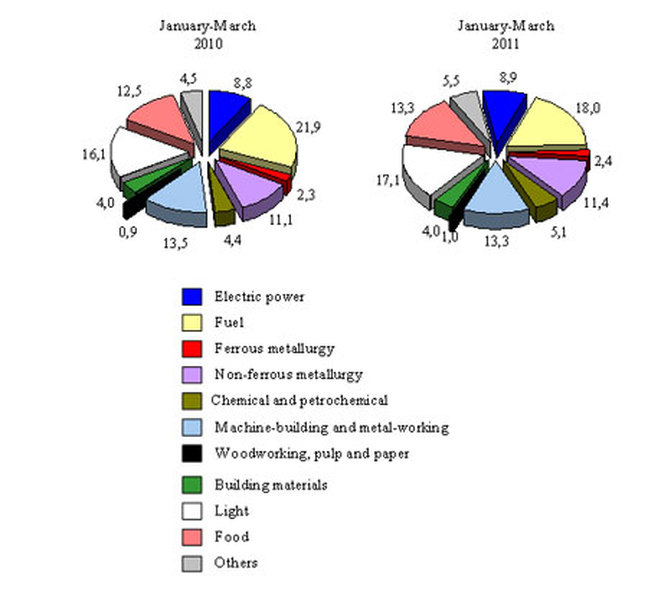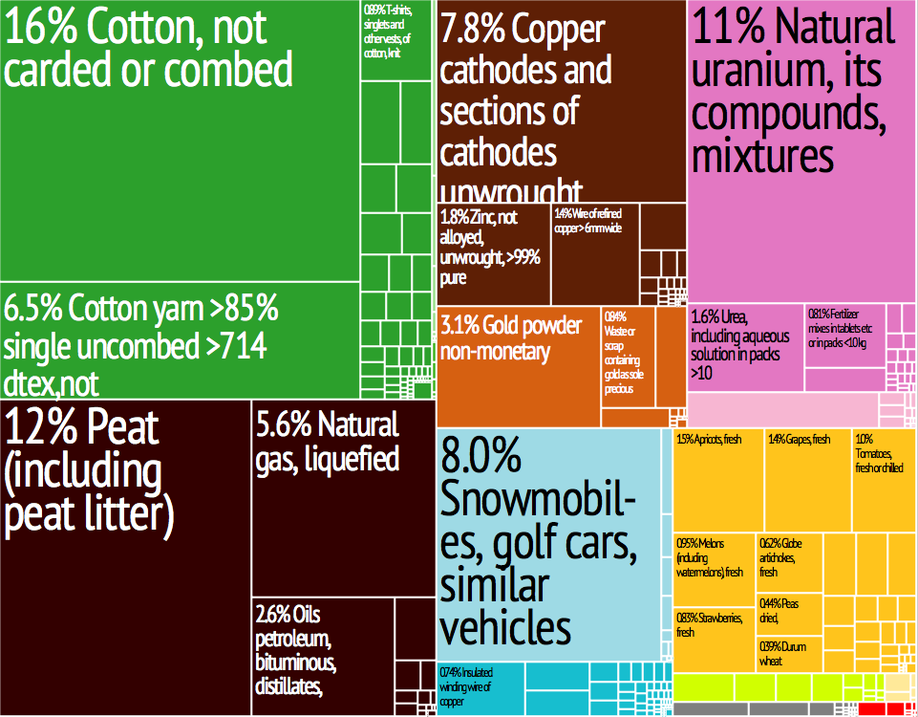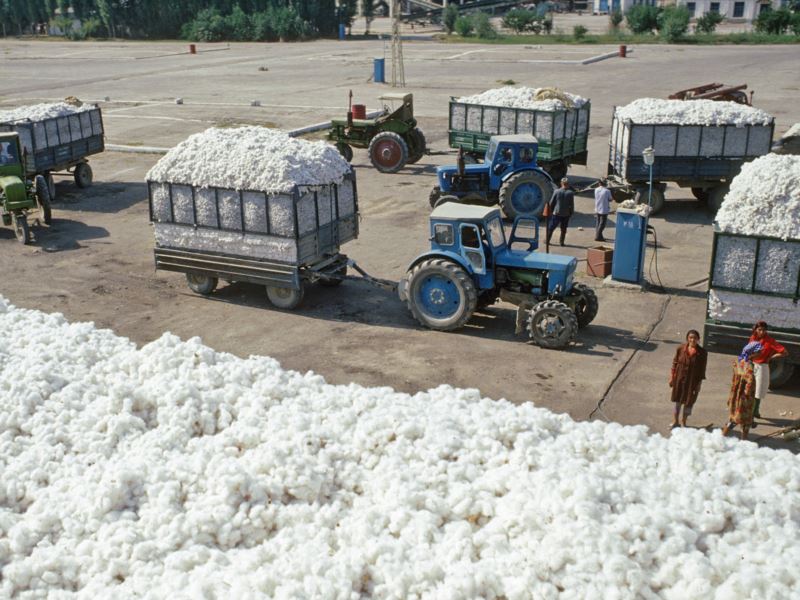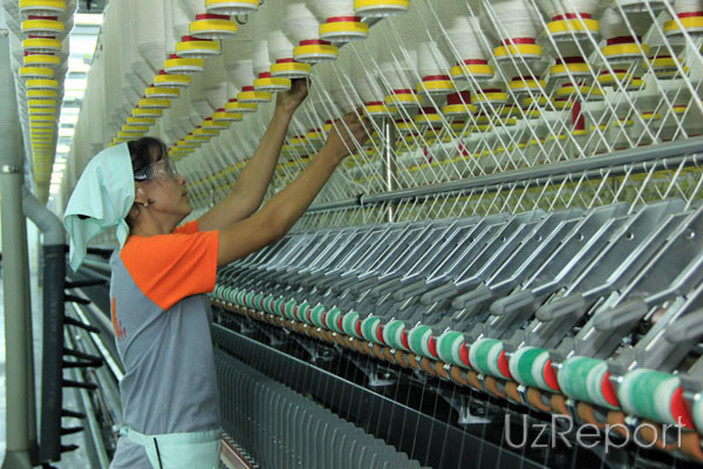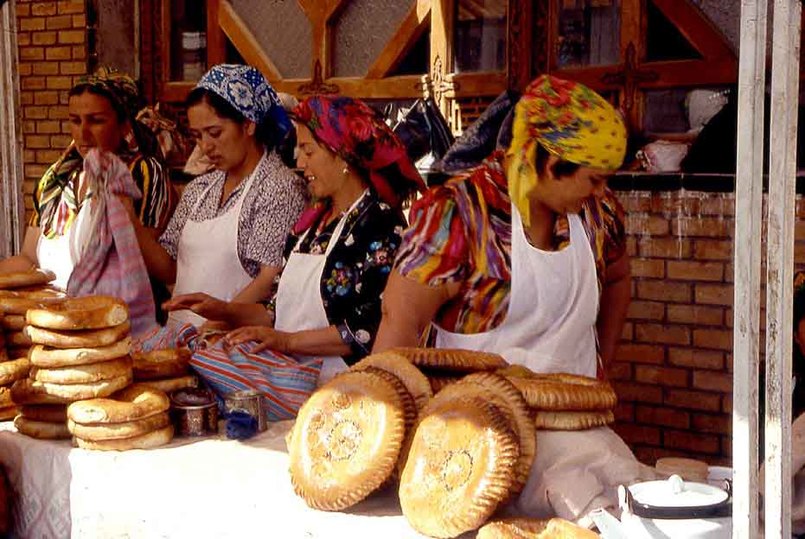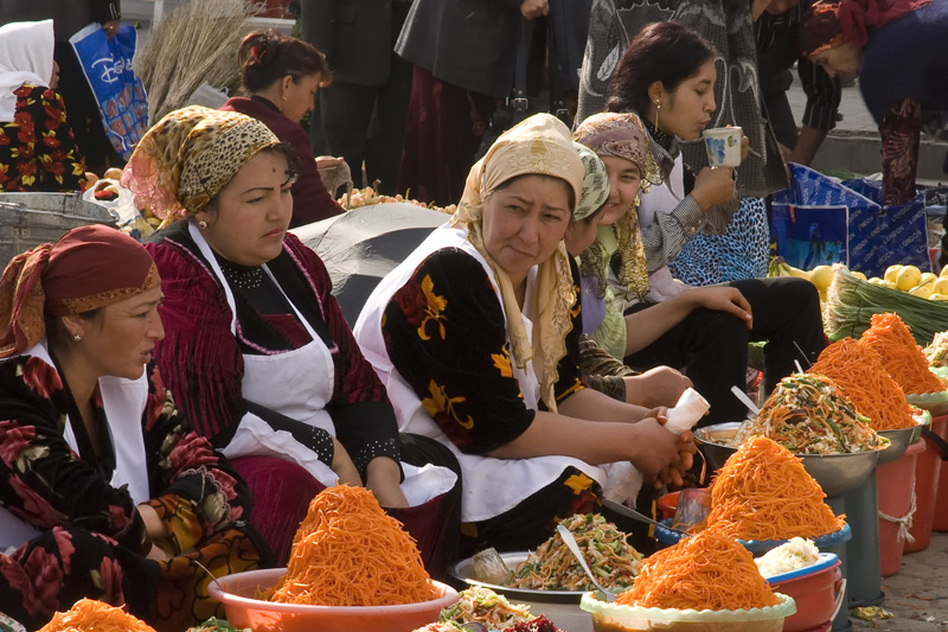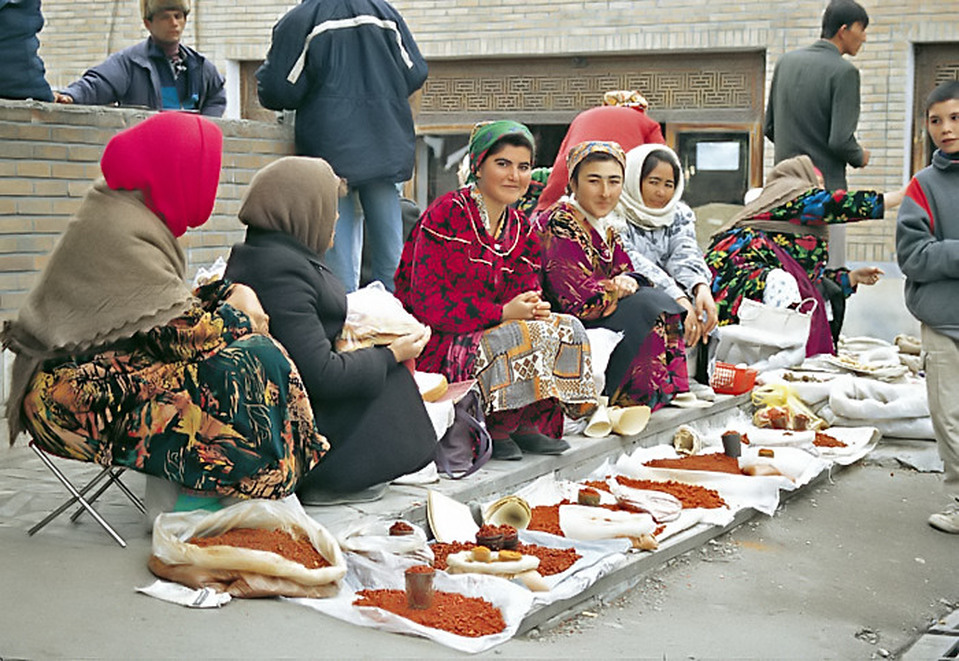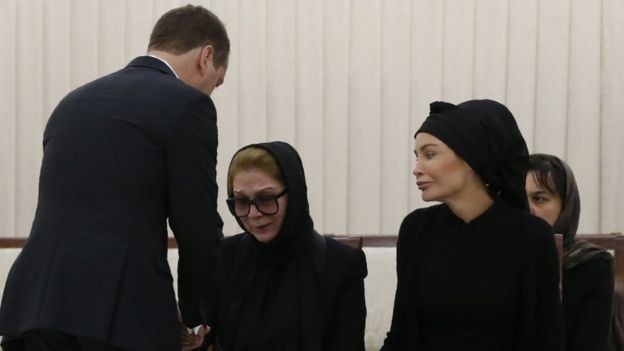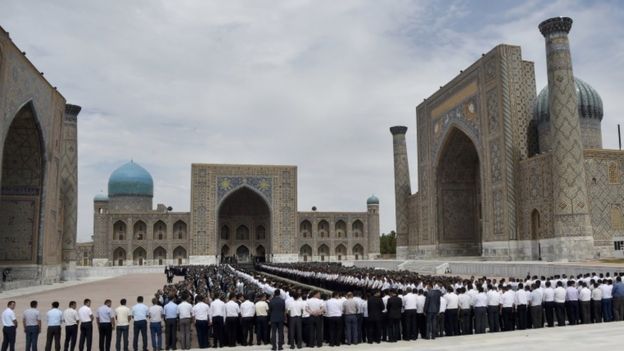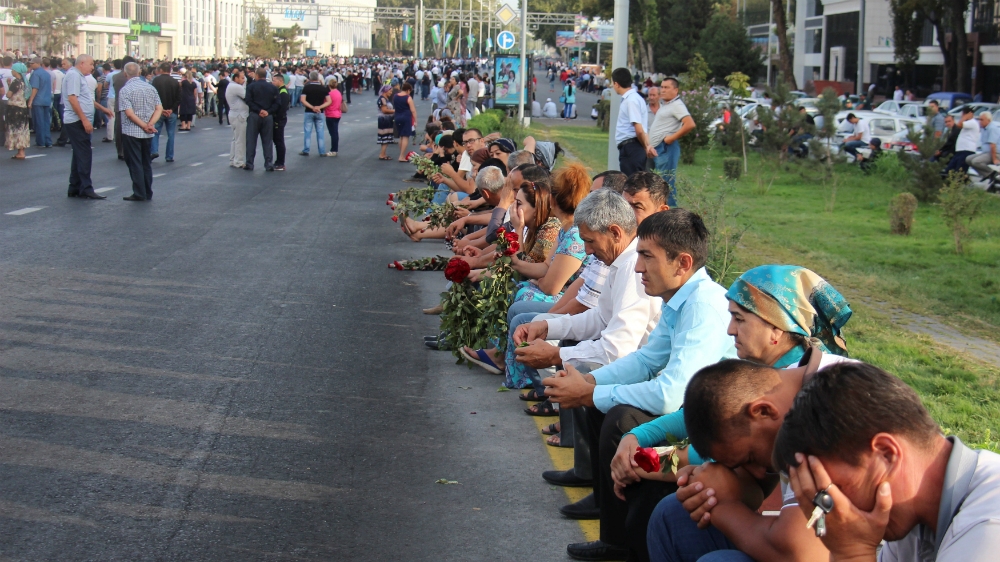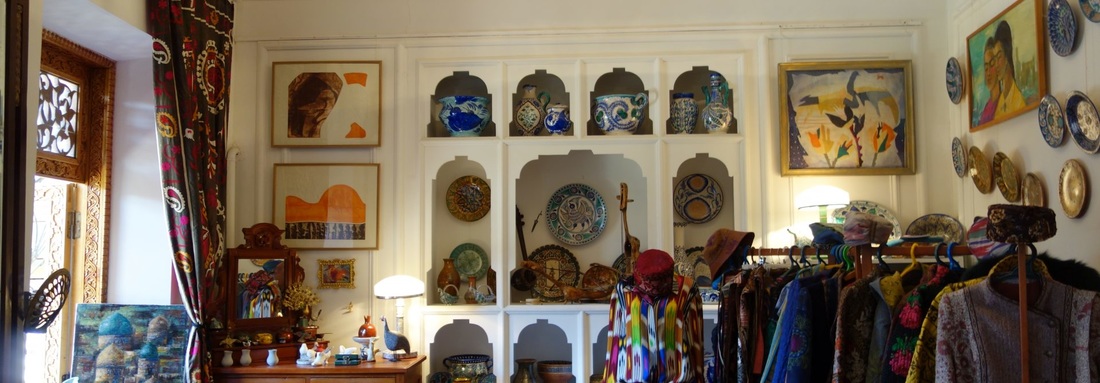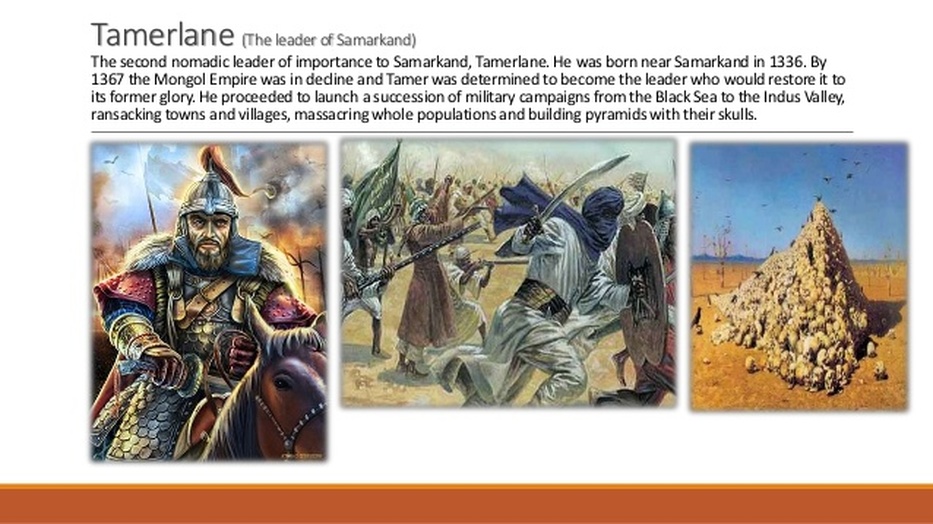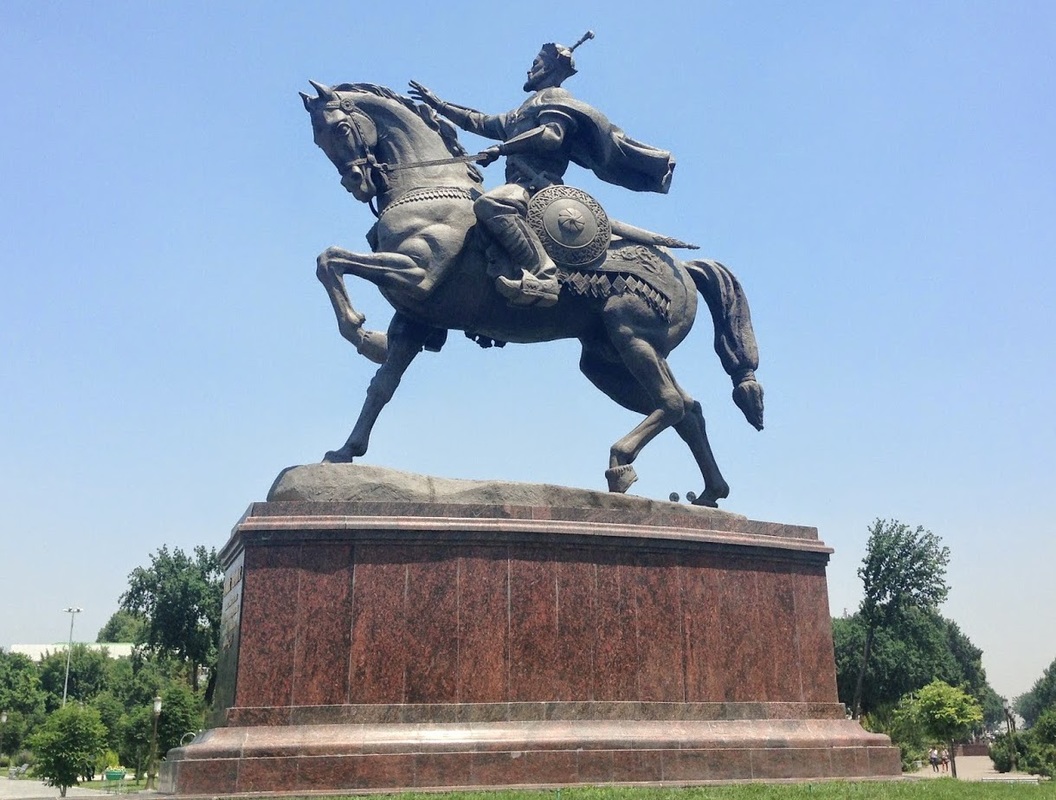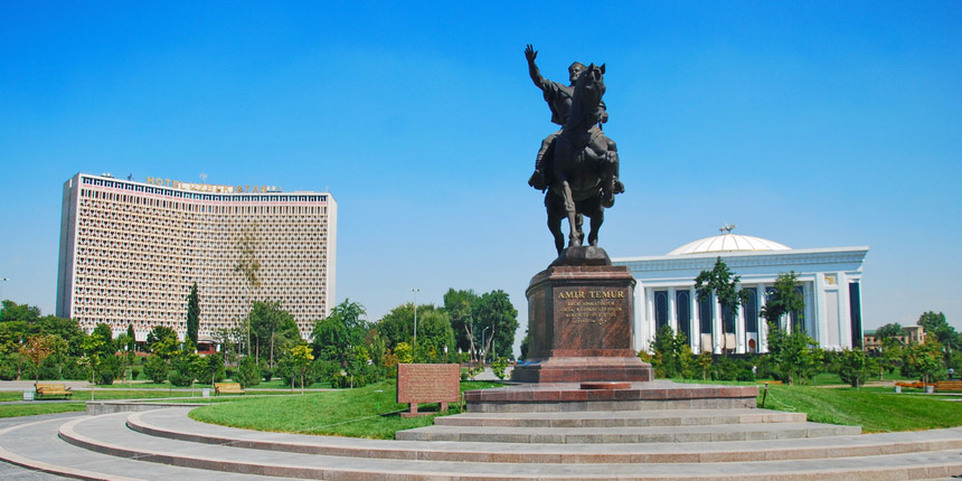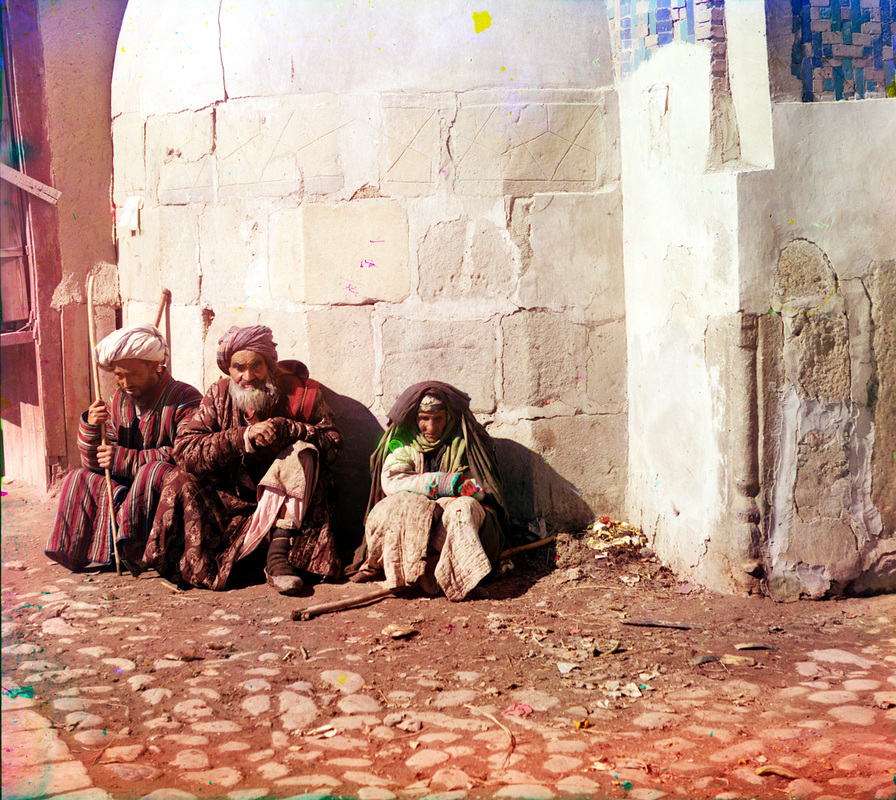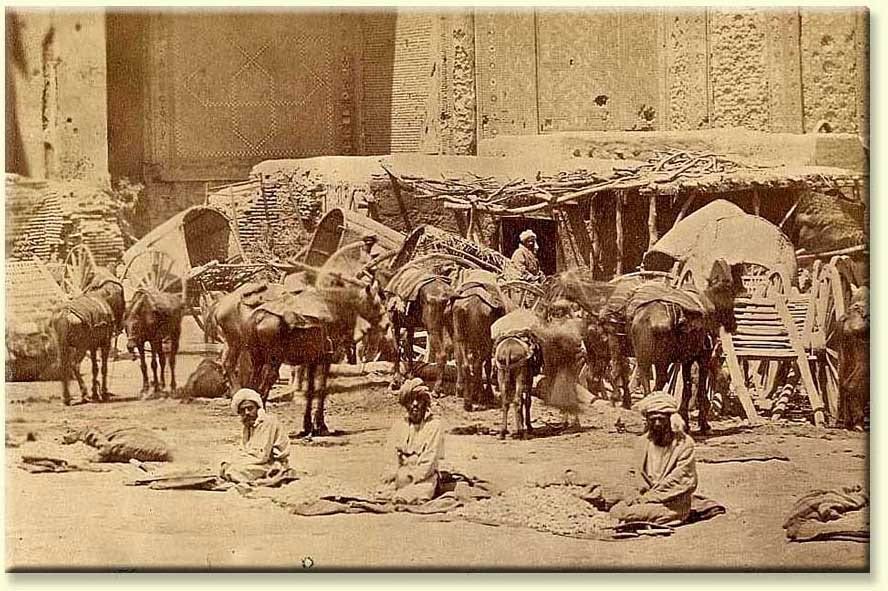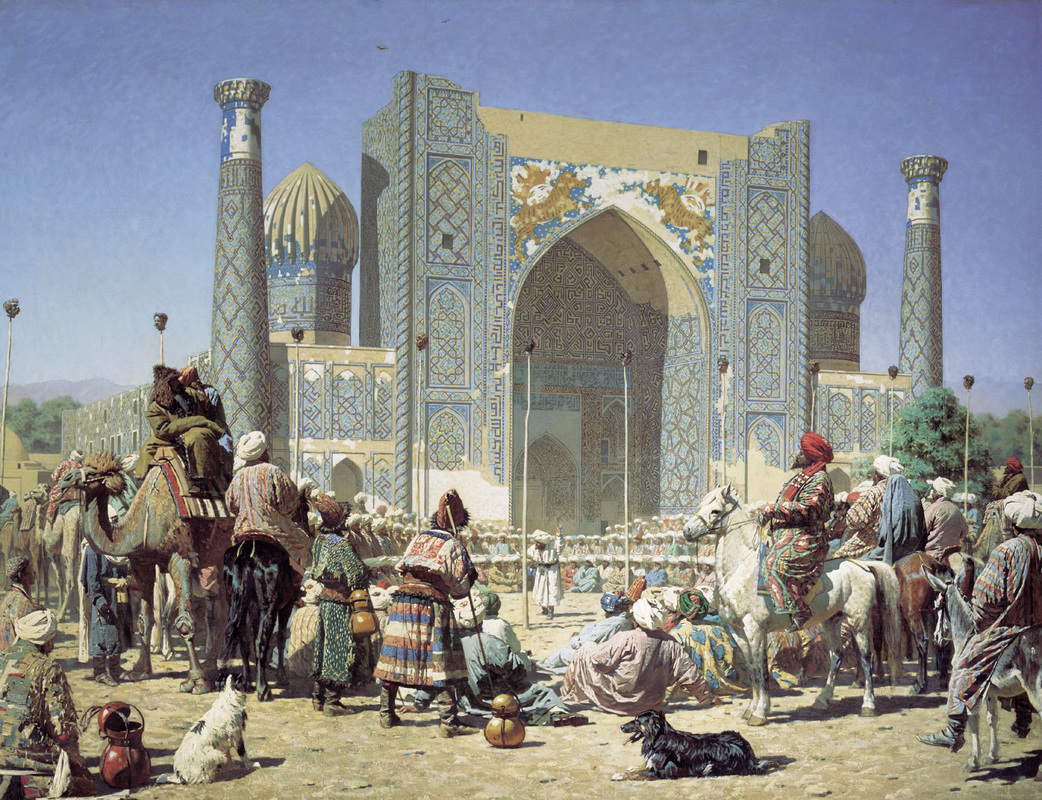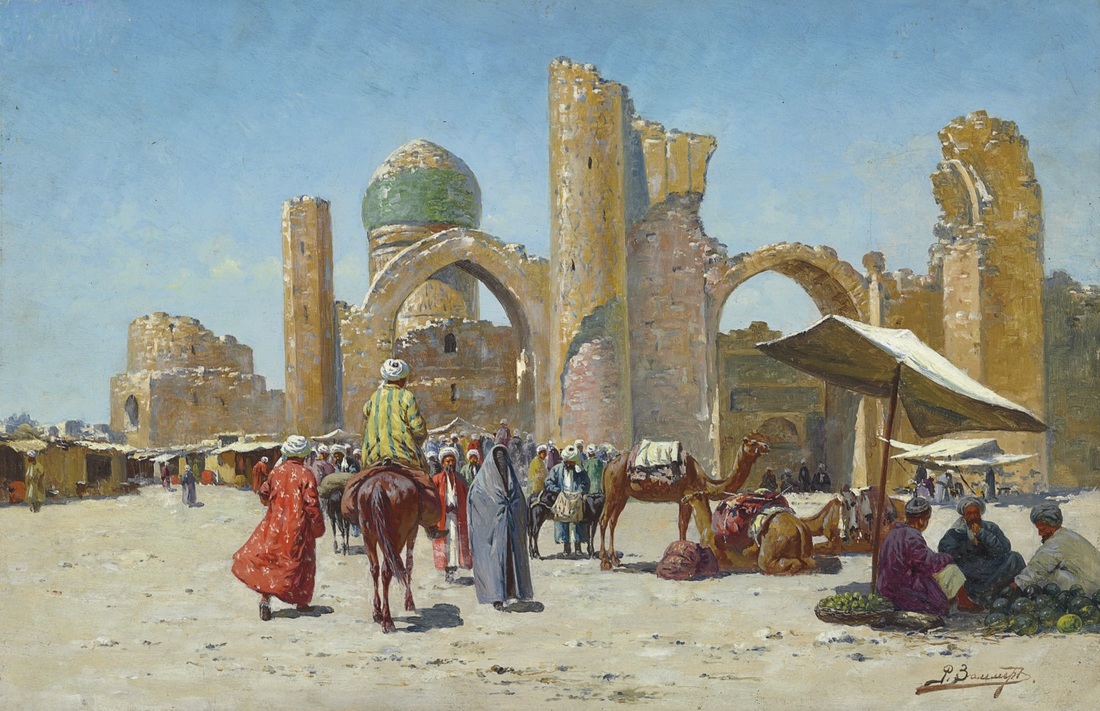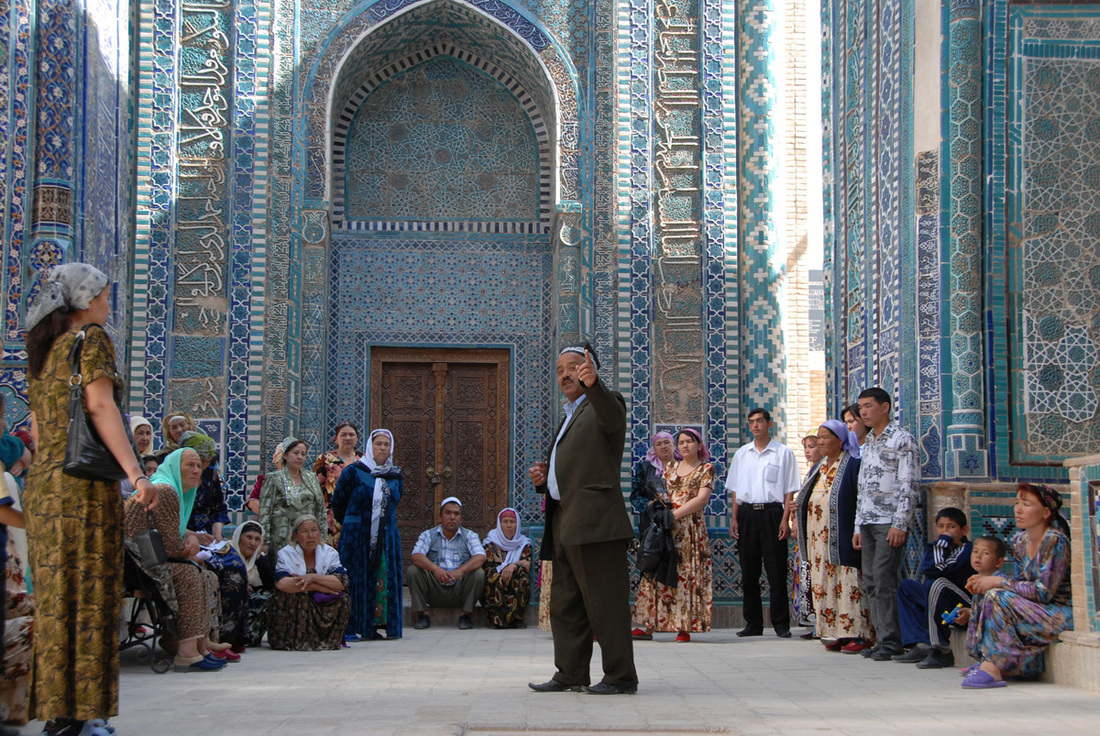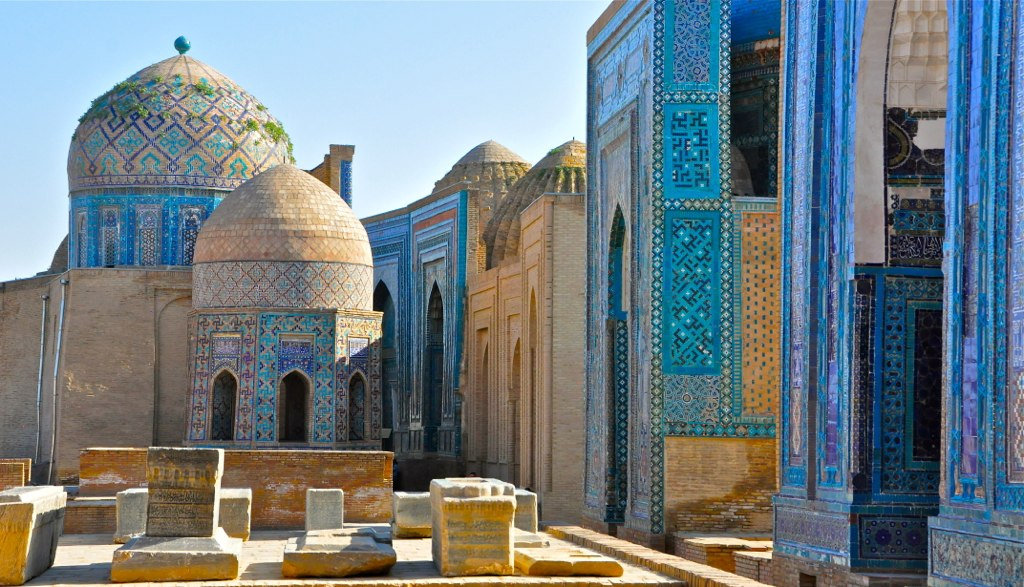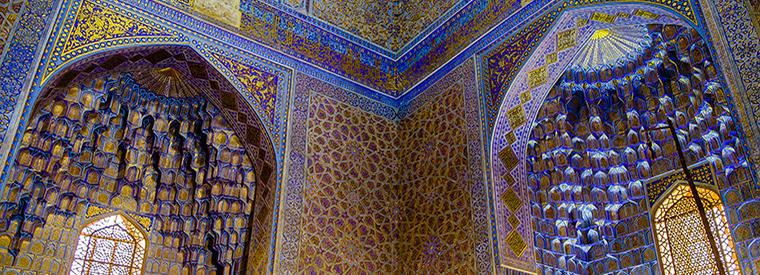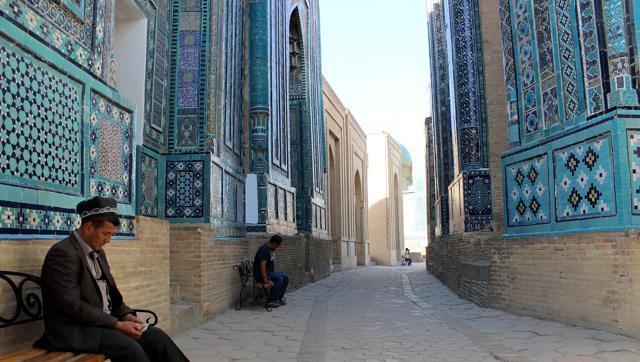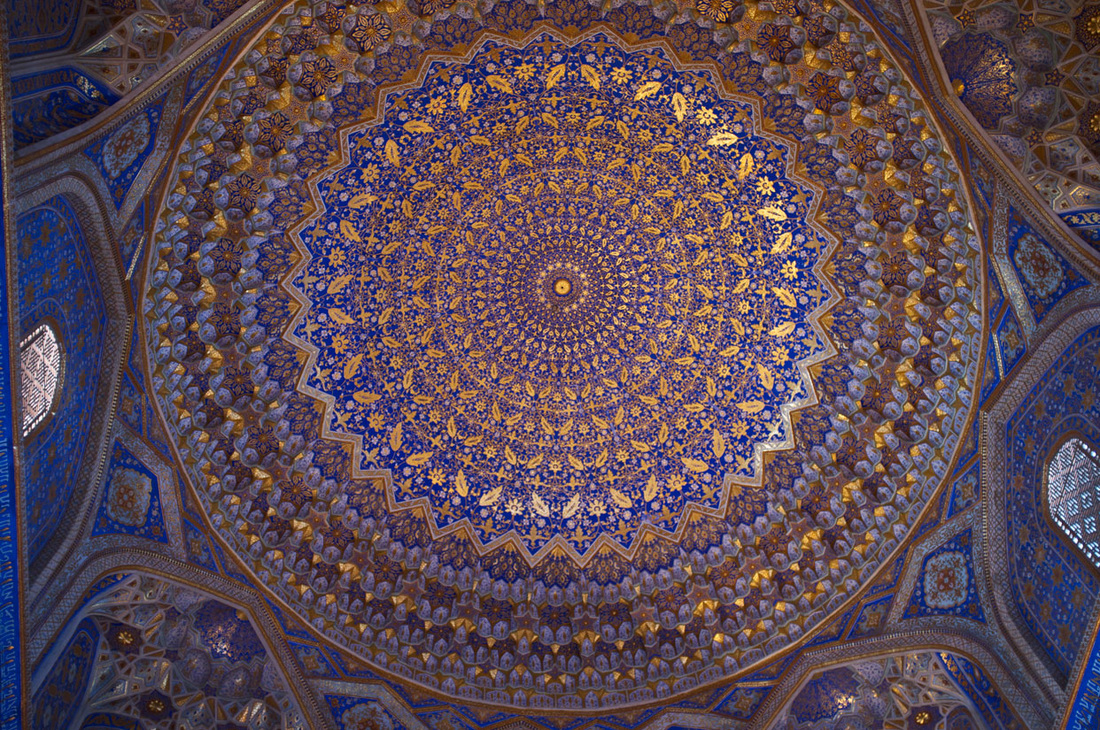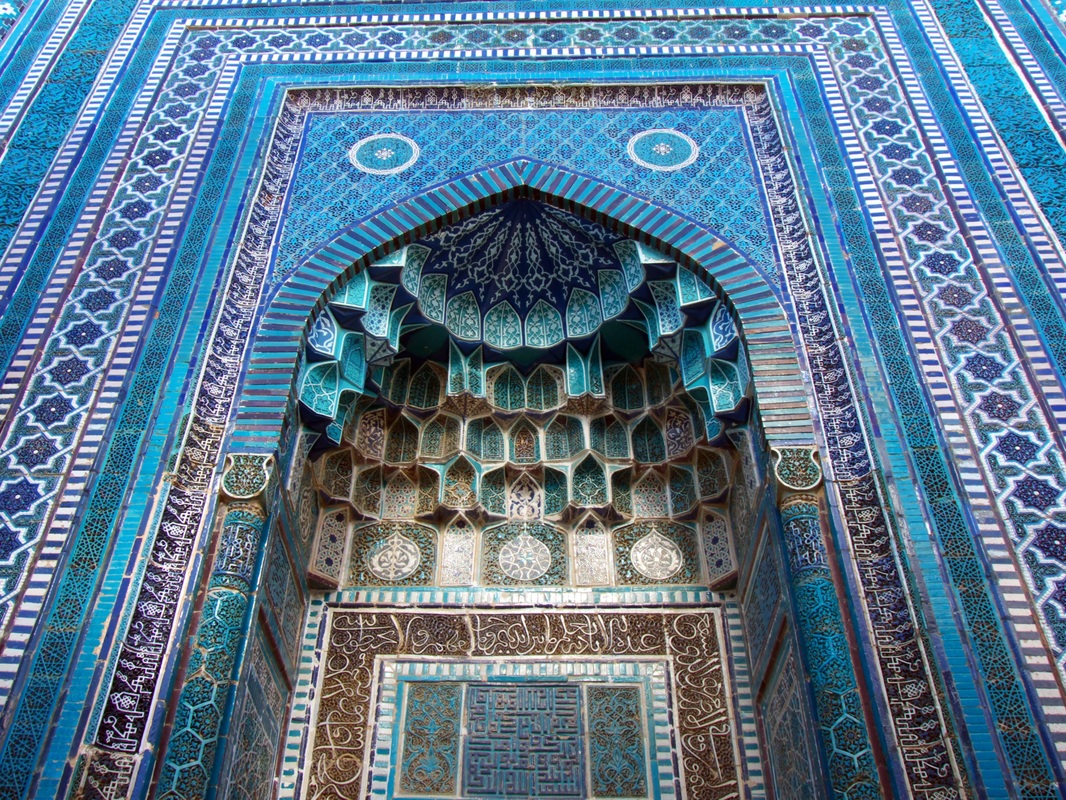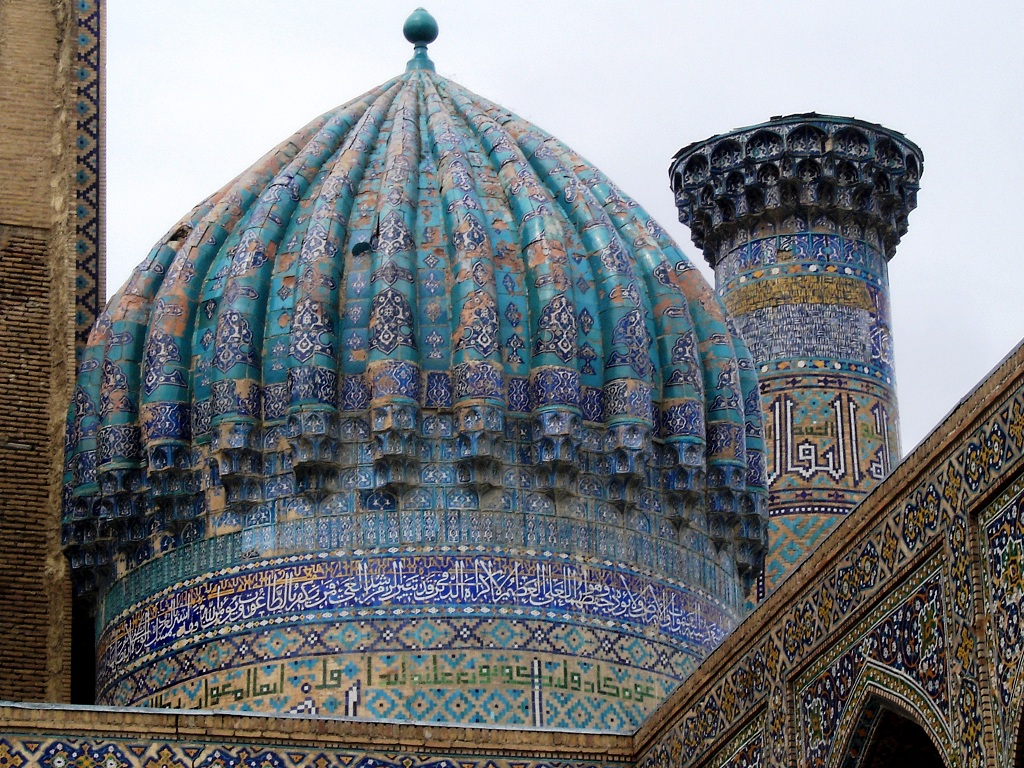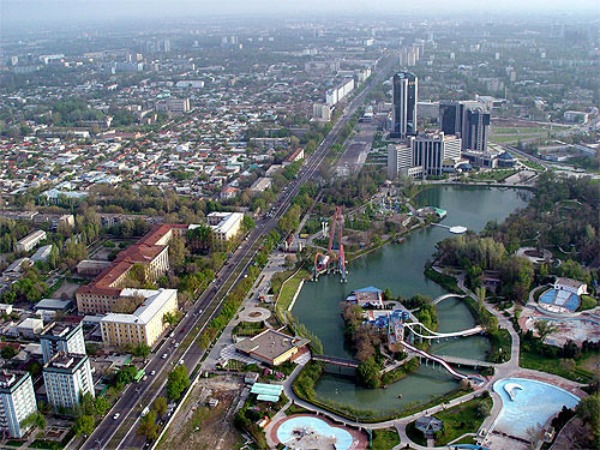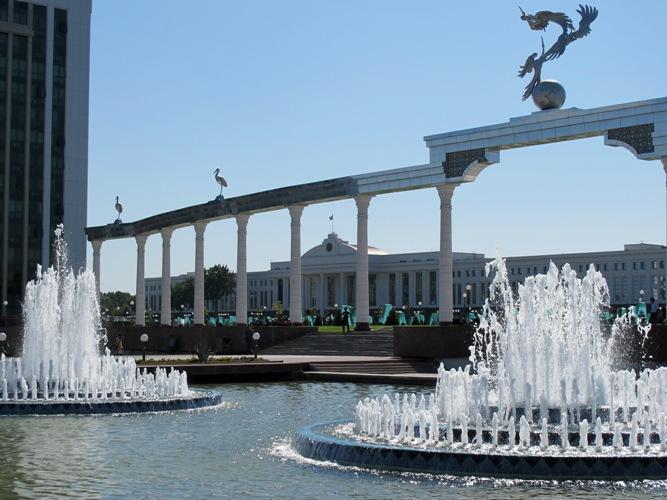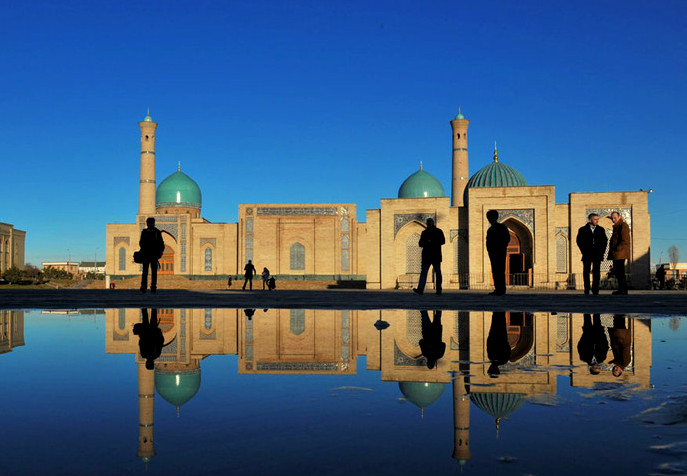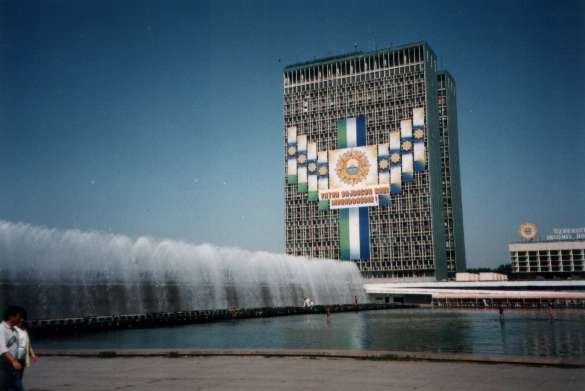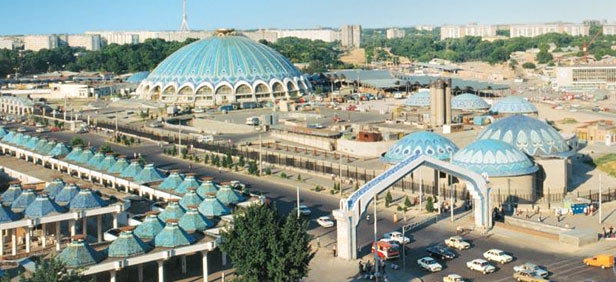COPYRIGHT NOTICE
'EARTH SHIFT REPORT 14: Prez Karimov's Death & Uzbekistan Crossroads'
IS COPYRIGHT September 5, 2016 LADA RAY, AUTHOR. ALL RIGHTS RESERVED.
NO COMPLETE REPORT REPOSTING OR RE-PRINTING,
NO DIRECT LINKS TO THIS PAGE (PLEASE LINK THE REPORT INFO PAGE INSTEAD).
**Since this report is made free for everyone, we appreciate a mention on social media, blogs, videos and sites!
You are welcome to QUOTE THIS REPORT AND/OR PROVIDE A LINK TO GENERAL EARTH SHIFT REPORT PAGE!
When quoting please provide link to source and credit to Lada Ray, author!
'EARTH SHIFT REPORT 14: Prez Karimov's Death & Uzbekistan Crossroads'
IS COPYRIGHT September 5, 2016 LADA RAY, AUTHOR. ALL RIGHTS RESERVED.
NO COMPLETE REPORT REPOSTING OR RE-PRINTING,
NO DIRECT LINKS TO THIS PAGE (PLEASE LINK THE REPORT INFO PAGE INSTEAD).
**Since this report is made free for everyone, we appreciate a mention on social media, blogs, videos and sites!
You are welcome to QUOTE THIS REPORT AND/OR PROVIDE A LINK TO GENERAL EARTH SHIFT REPORT PAGE!
When quoting please provide link to source and credit to Lada Ray, author!
EARTH SHIFT REPORT 14
A fascinating journey through time and space,
and through the forbidden history you never knew
PreSIDENT Karimov's Death & Uzbekistan Crossroads
(From the Silk Road to Islamism & maidan... to maybe Eurasian Union)
(Written Report with A spectacular Uzbekistan picture guide)
INTRO

On September 2, 2016 the government of Uzbekistan officially announced that Islam Karimov, continuous Uzbek president of 25 years, who had been in this post since 1991, suddenly passed on after a massive stroke. There were rumors that he, in fact, had died earlier but the real date was concealed.
The significance of what happened is three-fold.
1. Uzbekistan is a pivotal crossroads of Eurasia. In medieval times, its famous cities of Samarkand and Bukhara served as key connector points on the ancient Silk Road to Russia and Europe.
Today, this former Soviet Republic has a different significance. Still the richest and most influential state in Central Asia (except Kazakhstan), it serves as a key connector between republics which are in line for ascension into Eurasian Union. Without Uzbekistan it will be very hard to make EAEU truly functional in the region. Like with Ukraine in South-Eastern Europe, Uzbekistan is a link to other countries. Therefore, it is a lucrative strategic location to stage a color revolution in order to prevent the re-unification of Eurasia.
2. It is a tough test for the legacy left by Karimov and for the sturdiness of structures he was able to build after this Soviet republic literally fell in his lap during the breakup of the USSR.
Will his power and state security structures be able to deal with the aftermath of his death? There will definitely be attempts to create Islamic State (IS) and/or nationalistic Maidan in Uzbekistan. Some called Karimov 'a dictator.' Others consider him a Western sell-out. Whatever one may think of him, it is undeniable that he managed to preserve the republic he received 25 years ago intact, and didn't allow it to descend into the chaos of Muslim fundamentalism. Just facts: If not for the toughness combined with the cunning flexibility of maneuver Karimov had displayed, Uzbekistan would have long ago turned into the worst version of Ukraine, or into Libya. It had many opportunities to be plunged into a bloody Islamist civil war.
Uzbekistan has been primed for the Kiev-style Maidan since 1991, where many failed color revolution attempts took place. This activity in the past 2 years has intensified dramatically, coinciding with Ukraine 2014 coup and subsequent moves by Russia and Putin to expand Eurasian Union. I'd warned of the upcoming attempts at color revolutions in Central Asia and Caucasus in ESR9: ATTACK ON KAZAKHSTAN - WHO DESTABILIZES EURASIAN UNION.
Like its neighbors, Uzbekistan began its progress towards EAEU, while distancing itself from the former ally USA. And that's when Karimov suddenly passed on.
3. Was his death natural, or was it a foul play? At 78, Islam Karimov was the oldest of the post-Soviet space leaders. What has happened exposes a massive weak link in the power structures of Russia and post-Soviet / Eurasian states.
This glaring weakness has been known for years; however, to this date a fool-proof solution hasn't been found yet. I am talking about the fact that unlike in the West (say USA), where the country's leader is mostly, or entirely, a figurehead, with real puppet masters hiding in the safety of the behind-the-scenes obscurity, there is no shadow government in Russia and former republics. The real, and usually very strong leader is on top, for all to see. Because the truly strong, and often exceptional leader can and must stay at the helm for as long as possible, he'll continue being re-elected, staying in power for very extended periods. Consequently, such leader becomes a lightning rod for attacks.
For example, If Kazakhstan's Nazarbayev or Belarus's Lukashenko were to suddenly pass on, who would come after? In the situation of a sudden void, will the successor - who may not be as capable or prepared, or worse, who may have ulterior motives - be able to keep the country peaceful and intact?
This is a real and present danger for Kazakhstan and Belarus, as well as for Uzbekistan, Tajikistan, Kyrgyzstan and Turkmenistan. Of course the most important country where power succession contingencies must be in place is Russia. The debates and concerns have been sounding for years.
The Chinese, after some problems in the past, have developed a collective governance system, with the shadow advisory government panel that serves them well. I see strong indications that Russians have been able to develop a certain secret system as well. However, they won't advertise their new system, considering Russia is under a constant threat of hybrid war. Russians are right to keep it beyond reach. In 2015 I planned to do an Earth Shift Report about the new Russian secret advisory system. But in the end I decided against it. Since I am not after cheap sensationalism and my fifteen minutes of fame, like some others, my mission is to tell the truth and educate, but not at any cost. I want to be careful as some things best left unsaid. We mustn't give away the secrets that may fall into the wrong hands.
However, the question remains: was Karimov able to create a system and a succession contingency plan that would keep Uzbekistan intact? Also, will his passing put a dampener on the process of Uzbekistan joining EAEU? Or just the opposite: will it expedite it?
We'll see soon enough.
Where Uzbekistan falls on the new Eurasian map (2014)
Did Uzbekistan exist as an independent state at any time in history?
Central Asia as part of the Russian Empire and USSR; why Lenin formed 15 Soviet Republics
Before the 1917 Russian Revolution there was no country called Uzbekistan. Centuries prior, there were certain medieval city-states, whose controlled territory did not extend far beyond city walls. At one point there was an attempt by the Central Asian conqueror Tamerlane to conquer surrounding territories, which didn't last.
In short, there was never an extensive state united around capital such as the present capital city of Tashkent, or any other.
Just like Ukraine, Belarus, Kazakhstan, Latvia and Estonia, Uzbekistan has to thank Vladimir Lenin and the Bolsheviks for its statehood. At the time, in 1922, it was a progressive and seemingly brilliant geopolitical move by Lenin: each of the 15 Soviet republics and its citizens had democratic rights and privileges unheard of in then dominated by monarchies and severely stratified societies world. But as we now know, this expedient at the time move backfired terribly 70 years later.
Of course, the 15 Soviet republics were organized as part of the USSR structure, intended as parts of one whole. It was the breakup of the USSR in 1991 that for the first time in history created Uzbekistan, as well as most of the other 13 republics (except Russia) as independent states. (Three other republics, Armenia, Georgia and Lithuania had their own statehood at some point in history.)
Map of the Soviet Union: Uzbek Soviet Socialist Republic (SSR) is in purple, below Kazakh SSR
FLAGS:
1. Uzbek SSR flag with Uzbek SSR crest superimposed (both based on the USSR flag and crest)
2. Today's Uzbekistan flag (with decided influences from Muslim and US traditions)
Uzbekistan's color revolutions (2005 Andijan massacre)
1991-2016 Relations with US and Russia
Issues of security and stability during Karimov's reign
On September 2, 2016 the long-standing president of Uzbekistan, Islam Karimov, died from a stroke. Karimov has been continuous president since 1991, in other words, since the breakup of the USSR. He was 78, making him the oldest leader on the post-Soviet space.
His death yet again has risen the issues of security and stability of Uzbekistan, and Central Asia in general. Since 1991, Uzbekistan has been besieged by radical Islamist forces, which have intensified their activities lately, emboldened by the success of ISIS/Daesh in various countries. Karimov had previously dealt with various Islamist insurgents in a very resolute and even brutal way. The most well-known was the so-called in the West Andijan massacre. The Andijan uprising was in fact an attempted color revolution. If Karimov assumed the same attitude as Yanukovich in 2014, refusing to deal with reality, Uzbekistan today would have been worse than Ukraine. Uzbeks are fully aware that Karimov served as a guarantee of stability. It was after the 2005 Andijan events that Uzbek relations with US had soured. US accused Karimov of being a bloody dictator, while Karimov accused US of organizing color revolution.
Karimov's / Uzbek Relations with Russia had been lukewarm, slow and somewhat suspicious since 1991. There are very good reasons for that, of which you will read below.
However, as I wrote in my previous reports, notably, in ESR9: ATTACK ON KAZAKHSTAN, Karimov, as well as various other post-Soviet space leaders got the message of Ukraine's 2014 coup loud and clear. Therefore, Russia's frozen relations with Uzbekistan and other Muslim Central Asian (Kyrgyzstan, Tajikistan, Uzbekistan, Turkmenistan) and Caucasus (Azerbaijan) states began swiftly and dramatically improving. The leaders of all these Soviet republics, which - let's face it - never had the chance of being truly independent without Russia's support, suddenly began getting the fact that their personal power would be crushed in a New York minute, and their beloved countries would be plunged into a civil war before they could say 'why?' The only criteria for that would be the whim of Uncle Sam. Much like Ukraine, the real reason for them to be crushed and humiliated would be a desire to isolate Russia, creating anti-Russia's all around her perimeter.
Karimov understood that US was behind previous color revolution attempts in his country and that more were to come. In the past 2-3 years, he had been more and more outspokenly critical of USA's role in the region, openly naming US as the culprit.
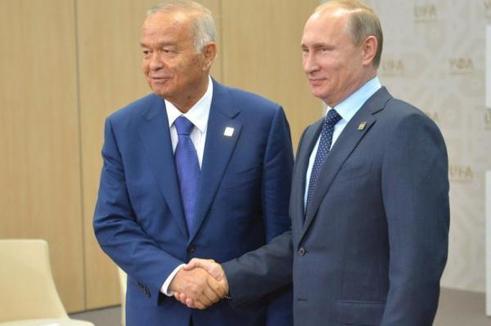
Why post-Soviet space leaders suddenly wanted to improve relations with Russia
Once all these 'authoritarian' post-Soviet leaders understood it, there was a stampede to improve relations with Russia. Of course, Putin, Lavrov and their team didn't sit idle and they made all the necessary friendly moves towards these ex-republics. This created a perfect storm, resulting in a massive shift.
Immediately after February 2014 Ukraine coup, Azerbaijan and its president Ilham Aliyev suddenly began making overtures towards Russia. The relations with Azerbaijan improved drastically in a matter of months. There were multiple attempts to yet again put a rift between Russia and Azerbaijan, but they all failed. One of the latest was when EU attempted to blackmail Ilham Aliyev into not inviting Putin to the opening of the first European Games in Baku. When Aliyev invited Putin, treating him as his special guest, all EU leaders boycotted the Games. None of them arrived to the Opening Ceremony.
The one exception was Czech President Miloš Zeman, who is considered the most open and unabashed Russophile among European politicians. For this he often pays dearly. But he is also useful for Western elites: his designated role is to be one of the few thin links between West and Russia in times of crisis, when Putin and his Western counterparts aren't on speaking terms. Such situations occurred in the past decade twice (2008-10 and 2014-15). Serving a role of a bridge and messenger of last resort, he is convenient to both sides as he can deliver messages no one else can.
Here are some images from Baku 2015 1st European Games - and I daresay the last. I think it was a stillborn child. As I said many times: the West uses sport as a proxy in the hybrid war against Russia and Russia's allies, therefore, anyone who wants to host Olympics or World Cup make themselves very vulnerable to attacks. In other words, any country should host such competitions are their own risk.
BAKU 2015 IMAGES
HISTORY REPEATS! VERY TIMELY TODAY! My June 30, 2015 post: Baku 2015 1st European Games (Putin and Erdogan about EU)
The events of 2014 and 2015 Baku2015 Games boycott by EU achieved the opposite effect of what was intended. Aliyev didn't run to the EU and US, hoping for forgiveness: instead it pushed him even closer to Russia. The relations between Azerbaijan and Russia continue improving. Azerbaijan made a 180% degree turnaround away from the US. Eventually, Azerbaijan will join EAEU. The last ditch effort to create a rift was done through Armenia by escalating Nagorno-Karabakh conflict. The idea was to start a full-scale new war between Azerbaijan and Armenia. FM Lavrov got immediately involved, dozing the conflict with a great deal of cooling water through Russia's peacemaking effort. Presently, since Russia managed to turn around the Turkey/Erdogan conflict orchestrated by the US to put a rift between Turkey and Russia, Azerbaijan as Turkey's big ally, will be even more confident in modeling its policies upon Russian scenario.
It appears Aliyev, who inherited from his father a solid political talent, figured out how to make friends, while de-escalating animosities. In a way, he is following the Syria/Assad blueprint. Stick with those who keep their word. Stay away from those who will do everything to destroy you - and it's nothing personal - just geopolitics. Azerbaijan is well positioned as a balancing bridge between Russia and Iran on one hand and Russia and Turkey on another.
At this point, Armenia looks much more vulnerable, complete with its 5 - now make it 6 - ongoing color revolution attempts in the past 2.5 years. Since 2014 Armenia, which previously dragged its feet, was accepted into Eurasian Union (EAEU). The situation in Armenia remains unstable and the US/CIA/NGO infiltration is absolutely off the charts. The Association of Armenians Abroad has publicly warned Armenian government that unless it deals with the fifth column and subversive elements now, Armenia will soon drift towards a Ukraine-Maidan scenario. The Association of Armenians Abroad has published damning evidence, complete with names of US, Ukrainian and Armenian citizens involved in destabilizing the country, including their pictures and passports.
Following Armenia, Kyrgyzstan also joined EAEU in 2015. Before that, Kyrgyzstan also made a fast turnaround, booting US army off its Manas base, which had been used for war in Afghanistan.
Tajikistan, who had been for years participating in EAEU meetings as an observer, also expressed its intention to join the organization. The difficulty with Tajikistan, besides the corruption of elites, is its inconvenient position behind Uzbekistan.
Therefore, Uzbekistan, the former seat of the ancient Silk Road to Russia and Europe, once again became a crucial geopolitical crossroads. In order to make EAEU viable and to facilitate Tajikistan's ascension, Uzbekistan is needed. However, Karimov has been playing hard to get as far as joining EAEU. There are 3 main reasons for his slowness:
1. He recalled how the USSR fell apart in 1991, and his republic, as well others were left in the cold. The thing is that in 1991 initially Karimov and Uzbekistan were for the preservation of the USSR. This is a very important point to understand: The vast majority of this Soviet republic, third largest after Russia and Ukraine, voted for the preservation of the Soviet Union at the national referendum of 1991. Read on to get the complete picture of what and how it really happened!
There was a profound sense of abandonment and trauma associated with the breakup of the USSR in millions of people. We talked about the psychological effect and resulting humanitarian catastrophe in ESR3: OLIGARCH WARS. Having seen what happened back then with his own eyes, Karimov naturally was a bit suspicious and slow to make such a big move.
2. To date, there remain various pro-Western, nationalistic and fundamentalist Islam fifth column and terrorist sleeper cells in Uzbekistan. Karimov had to tread softly to avoid generating a Maidan color revolution scenario. He was successful in keeping the country under control; It stands to reason that without Karimov Uzbekistan would have easily descended into chaos at any time in the past 25 years.
3. Last but not least: Karimov's own pride got in the way. From last year's interactions I observed between Putin and Karimov, as well as how Karimov talked about such interactions, it was clear he was a very prideful man. This is in line with Muslim/Central Asian customs. He wanted to be basically worshiped and 'respected' all the way. He had an awfully big ego and a lot of fire. No modesty or moderation to speak of. To Putin's credit, he gladly indulged Karimov's ego, judging correctly that it was a small price to pay for the big picture.
Examples I observed:
As a result of Putin/Russia's wise actions, Uzbekistan in 2016 was on the brink of announcing the plan to join EAEU.
This you won't read anywhere else! The signals were unmistakable. One of the obvious, right on the surface signals was the record number of times Putin and Karimov met in the past year. Another signal was how Karimov's rhetoric towards Russia and Putin changed in the past 2 years. Third signal was the activity of Kazakh President Nursultan Nazarbayev. The few who are in the know understand what role Nazarbayev really plays in the EAEU. He is the go to shuttle - peacemaker - bridge between parties. He also is basically the Eurasian Idea salesman. Of course, there is also the fact that Uzbekistan booted out US military from its base.
There are more signals that are hidden, which I'd refrain from disclosing. We don't want this knowledge falling into the wrong hands.
Consequently, the secret plan was already in place. It would not be announced until last moment, considering the escalating hybrid war and the dangers of color revolution. Neither Russia nor Uzbeks wanted to tip off US as to their plans.
And then... Karimov gets a stroke and dies. We won't go into the details of whether it really was a stroke, or whether he, like Venezuela's Hugo Chavez, was in fact poisoned, inducing an artificial stroke. Incidentally, rumors about Karimov's illness and death floated around for a few days prior, without any confirmation by the government.
Scenario 1: Considering the situation and examples like Hugo Chavez's, it is possible that someone participating in this great global info war jumped the gun and announced his pre-planned death prematurely, before it actually occurred. Recall how during 9/11 one of the US networks announced that Building 7 has fallen, while behind the anchor was a live picture of Building 7 intact.
Scenario 2: Karimov's people delayed the announcement to buy time to avoid panic, to solidify power structures and to prepare for potential color revolution. My view: it's the latter. Read on to find out why.
The most important point to understand is this: who benefits from Karimov's death and who doesn't?
Obviously, Russia and Putin, who invested a lot of time, money and effort in the past 2-3 years in getting Uzbekistan on their side do not benefit. Neither does Kazakhstan and Nazarbayev, nor the neighboring Central Asian countries, who are awaiting Uzbekistan's ascension into the Eurasian Union with bated breath.
Did his rivals inside the country decided it was time for him to go? It is possible.
US/ NWO, wanting to prevent at all cost the rebirth and re-consolidation of the Russian World, may think they'll benefit from Karimov's death. Similarly, ISIS/Daesh and all sorts of Uzbek nationalistic and Islamist organizations may think they'll benefit as well. I happen to think that they are wrong - read on to find out why.
These organizations wanted to create out of Uzbekistan an Islamic State since 1991: with Shariah law and expelling all non-Muslims, in other words, Russians. Karimov has to be fully credited with preventing this scenario. Russian population still had deceased dramatically from about 1.5 million during Soviet times to about only 1/3 of that number today. Presently, most voices from Uzbekistan are for the renewed meaningful union with Russia.
Millions of Uzbeks work in Russia as migrant workers. Main reasons:
1. Work in Uzbekistan is hard to come by.
2. If you do, it will be low paying, even if one is a professional. In Russia they make many times as much doing simple menial jobs. The situation is exactly the same as with migrant workers in US and EU.
Russia occupies 2nd place in the world in immigration, after the US. A few years ago the number of migrants stood at 10 mln. Today, it has jumped to about 12-13 mln. And this is official numbers; unofficially, it's much more.
Structure of Uzbekistan's economy
Uzbekistan was always famous for its cotton and its food: cotton harvest and production
Famed Uzbek Plov, a very delicious dish, consisting of rice, meat, garlic and spices; carrots, raisins or other dried fruit could be added as well.
Vibrant Central Asian / Uzbek bazaars haven't changed much since the times of the old Silk Road:
local breads, vegetables and spices are sold.
The only difference: now women sell produce, while in medieval times only men were allowed to trade. A woman's place was at home, cooking, cleaning, rearing children, while her face and body had to stay hidden at all times underneath a burqa.
It has to be strongly emphasized that this was a life of a woman in Central Asia before the 1917 Russian Revolution.
With all its shortcomings, the Revolution and new ideas by Lenin brought a true social revolution to backwards areas like Central Asia. Women suddenly could go to school, vote, gain professions and work outside of home.
Who is really Islam Karimov?
Psychological portrait of a leader (plus of his republic and of the post-Soviet space)
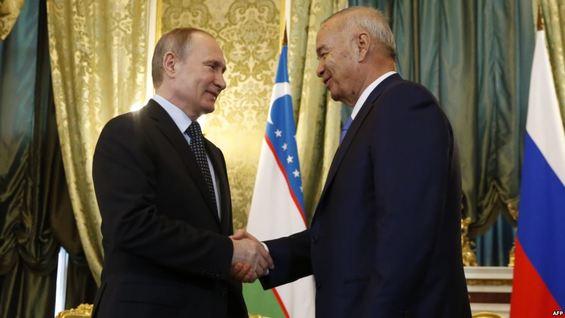
Karimov grew up in an orphanage in Samarkand and went on to study mechanical engineering and economics, before joining the Communist Party of the Soviet Union. In 1989, he was appointed as the party's First Secretary in Uzbekistan.
He presided over Uzbekistan for 2 years when in 1991 the USSR began disbanding. What happened came as a shock to everyone, certainly including Karimov.
A few years ago Vladimir Putin dubbed the breakup of the USSR the largest humanitarian catastrophe of the second half of the 20th century - the assessment with which I completely agree. By estimate, at least 25 million Russians got stranded in what was now foreign lands and often hostile regimes, illegal aliens in their own country. I am talking here of ethnic Russians just left to their own devices in various post-Soviet republics and unable to move to Russia. But in addition, millions and millions of people of varying ethnicities and creeds never wanted to give up the USSR and they suffered terribly being denied the Big Motherland they knew and loved.
Very few in the West know that in 1991 there was an all-USSR referendum in which every Soviet citizen could vote whether they wanted to preserve the Soviet Union. In this referendum the majority said YES, we want to preserve the USSR. Several republics opted out of participating in the referendum, most notably the Baltics. But even without the Baltics - with its very tiny population indeed - the majority of the country still voted YES. Most notably, the vast majority of Ukrainians said Yes, which gives the legal grounds to annul and reverse the results of Yeltsin Belovezhskaya Pushcha agreement, which disbanded the USSR.
As to Uzbekistan, the story was quite remarkable. An Uzbek Islamist nationalistic leader who rose on the uncertainty of the USSR, was pushing for secession and the establishement of Islamic State (IS) in Uzbekistan - yes, back in 1991.
It was Islam Karimov who convinced the people to vote for the USSR. The result: 94% of Uzbeks for preserving the USSR. Just compare these numbers with say, the recent Brexit vote, when 52% voted to secede from the EU!
The popular mythology tells us that the USSR fell apart because people didn't want it any more. The results of the 1991 Soviet referendum present a different picture. If it was so bad, why were people voting in 1991 to preserve the USSR? Is it possible that the reality was not as it is being described?
After his defeat, the Islamist leader defected and joined Al Qaeda together with his army of militants. How many of these are now in the ranks of ISIS-Daesh? How many are awaiting today a chance of taking revenge in Uzbekistan?
However, back in 1991, just a few months after the 94% for the USSR result, the USSR was still disbanded. Karimov promptly switched gears and became a nationalistic leader. Mythology was created around his persona that he was the one who brought independence to Uzbekistan - a myth diligently cultivated today through history books and TV.
Gradually relations between Russia and Uzbekistan became more and more distant and cool.
The turnaround began after Putin came to power. Some slow improvements began after the 2005 attempted color revolution, which Karimov brutally suppressed. The West began criticizing him for human rights violations, while Karimov came out with, at the time muted, accusation against US being organizer of the revolt. Relations with US began to sour. After 2014 Ukraine coup Karimov, just like many other post-Soviet leaders, heard the message loud and clear and began swiftly getting closer to Russia. Destabilization attempts in various republics continued. Uzbekistan had to deal with its share of western NGOs and fifth column, plus Turkish, Al Qaeda, ISIS/Daesh Islamist extremism. Against this backdrop Russia looked better and better.
However, Karimov was still playing hard to get, something preventing him from making more resolute steps toward Russia. Part of it was what looked like Karimov's overwhelming pride. But if we dig deeper, we would see how a large part of this pride stemmed from a deep-seated vulnerability: the memory of once being 'abandoned' by the USSR. Someone who was once hurt like this is cautious to get back into a relationship. Karimov grew up in an orphanage. Psychologically, this explains very well his distrust and fear of being 'abandonded' again.
I described in detail the full picture of the deep psychological trauma and the aftermath of the USSR breakup for all Soviet republics in ESR3: OLIGARCH WARS. Check it out!
Karimov's pride stemming from vulnerability examples:
1.
When relations between Russia and Uzbekistan began improving, Putin met with Karimov at one point in 2014. During televised meeting with Putin and other Russians, Karimov suddenly complained that he tried to talk to Putin by phone to be told by his gatekeepers that Putin was busy. I wish you had time for me, said Karimov. It sounded childish coming from a leader of a supposedly independent country. But it confirms everything I said, and will still say, in this report.
In response, Putin smiled warmly at Karimov and uttered, 'For you, Islam Abduganiyevich, I always have time.' (In Russian you address one respectfully by his/her first name and patronymic).
Putin's wise reply put Karimov at ease, and the situation was smoothed out.
2.
On another occasion, taking place more recently in 2016, Karimov again was talking on camera. Putin wasn't present, but several post-Soviet heads of state were. They included Kazakhstan's Nazarbayev, Kyrgyz, Tajik and other Central Asian leaders. Since even the elderly Nazarbayev is a kid compared to Karimov, and in those parts you are supposed to respect your elders, everyone else kept their mouths shut as Karimov boasted: 'I sometimes tell it straight to Vladimir Vladimirovich (Putin). May be I even say too much. But he listens to me. He lets me say more things than anyone else, probably because he knows my honesty and because of my age.'
Of course he does - he is a good diplomat and he puts the strategic common good above some silly little pride. If he needed to indulge boastful Karimov, he would. Lukashenko of Belarus is a bit similar to Karimov in style. Thank god others are much more modest.
Karimov's rift with the US and sanctions
This is never advertised in the West, but Islam Karimov was for several years under personal US sanctions. Based on what? There were so many conflicting versions of events that I'm sure the White House itself wouldn't be able to answer this question. Because he suppressed the 2005 Maidan the US had organized? Because Karimov booted out US base? Because Uzbekistan began getting too close to Russia? Or just in case? It was so ridiculous that at one point Karimov offered to take a lie detector test if US took off his sanctions. No response to that offer transpired.
He presided over Uzbekistan for 2 years when in 1991 the USSR began disbanding. What happened came as a shock to everyone, certainly including Karimov.
A few years ago Vladimir Putin dubbed the breakup of the USSR the largest humanitarian catastrophe of the second half of the 20th century - the assessment with which I completely agree. By estimate, at least 25 million Russians got stranded in what was now foreign lands and often hostile regimes, illegal aliens in their own country. I am talking here of ethnic Russians just left to their own devices in various post-Soviet republics and unable to move to Russia. But in addition, millions and millions of people of varying ethnicities and creeds never wanted to give up the USSR and they suffered terribly being denied the Big Motherland they knew and loved.
Very few in the West know that in 1991 there was an all-USSR referendum in which every Soviet citizen could vote whether they wanted to preserve the Soviet Union. In this referendum the majority said YES, we want to preserve the USSR. Several republics opted out of participating in the referendum, most notably the Baltics. But even without the Baltics - with its very tiny population indeed - the majority of the country still voted YES. Most notably, the vast majority of Ukrainians said Yes, which gives the legal grounds to annul and reverse the results of Yeltsin Belovezhskaya Pushcha agreement, which disbanded the USSR.
As to Uzbekistan, the story was quite remarkable. An Uzbek Islamist nationalistic leader who rose on the uncertainty of the USSR, was pushing for secession and the establishement of Islamic State (IS) in Uzbekistan - yes, back in 1991.
It was Islam Karimov who convinced the people to vote for the USSR. The result: 94% of Uzbeks for preserving the USSR. Just compare these numbers with say, the recent Brexit vote, when 52% voted to secede from the EU!
The popular mythology tells us that the USSR fell apart because people didn't want it any more. The results of the 1991 Soviet referendum present a different picture. If it was so bad, why were people voting in 1991 to preserve the USSR? Is it possible that the reality was not as it is being described?
After his defeat, the Islamist leader defected and joined Al Qaeda together with his army of militants. How many of these are now in the ranks of ISIS-Daesh? How many are awaiting today a chance of taking revenge in Uzbekistan?
However, back in 1991, just a few months after the 94% for the USSR result, the USSR was still disbanded. Karimov promptly switched gears and became a nationalistic leader. Mythology was created around his persona that he was the one who brought independence to Uzbekistan - a myth diligently cultivated today through history books and TV.
Gradually relations between Russia and Uzbekistan became more and more distant and cool.
The turnaround began after Putin came to power. Some slow improvements began after the 2005 attempted color revolution, which Karimov brutally suppressed. The West began criticizing him for human rights violations, while Karimov came out with, at the time muted, accusation against US being organizer of the revolt. Relations with US began to sour. After 2014 Ukraine coup Karimov, just like many other post-Soviet leaders, heard the message loud and clear and began swiftly getting closer to Russia. Destabilization attempts in various republics continued. Uzbekistan had to deal with its share of western NGOs and fifth column, plus Turkish, Al Qaeda, ISIS/Daesh Islamist extremism. Against this backdrop Russia looked better and better.
However, Karimov was still playing hard to get, something preventing him from making more resolute steps toward Russia. Part of it was what looked like Karimov's overwhelming pride. But if we dig deeper, we would see how a large part of this pride stemmed from a deep-seated vulnerability: the memory of once being 'abandoned' by the USSR. Someone who was once hurt like this is cautious to get back into a relationship. Karimov grew up in an orphanage. Psychologically, this explains very well his distrust and fear of being 'abandonded' again.
I described in detail the full picture of the deep psychological trauma and the aftermath of the USSR breakup for all Soviet republics in ESR3: OLIGARCH WARS. Check it out!
Karimov's pride stemming from vulnerability examples:
1.
When relations between Russia and Uzbekistan began improving, Putin met with Karimov at one point in 2014. During televised meeting with Putin and other Russians, Karimov suddenly complained that he tried to talk to Putin by phone to be told by his gatekeepers that Putin was busy. I wish you had time for me, said Karimov. It sounded childish coming from a leader of a supposedly independent country. But it confirms everything I said, and will still say, in this report.
In response, Putin smiled warmly at Karimov and uttered, 'For you, Islam Abduganiyevich, I always have time.' (In Russian you address one respectfully by his/her first name and patronymic).
Putin's wise reply put Karimov at ease, and the situation was smoothed out.
2.
On another occasion, taking place more recently in 2016, Karimov again was talking on camera. Putin wasn't present, but several post-Soviet heads of state were. They included Kazakhstan's Nazarbayev, Kyrgyz, Tajik and other Central Asian leaders. Since even the elderly Nazarbayev is a kid compared to Karimov, and in those parts you are supposed to respect your elders, everyone else kept their mouths shut as Karimov boasted: 'I sometimes tell it straight to Vladimir Vladimirovich (Putin). May be I even say too much. But he listens to me. He lets me say more things than anyone else, probably because he knows my honesty and because of my age.'
Of course he does - he is a good diplomat and he puts the strategic common good above some silly little pride. If he needed to indulge boastful Karimov, he would. Lukashenko of Belarus is a bit similar to Karimov in style. Thank god others are much more modest.
Karimov's rift with the US and sanctions
This is never advertised in the West, but Islam Karimov was for several years under personal US sanctions. Based on what? There were so many conflicting versions of events that I'm sure the White House itself wouldn't be able to answer this question. Because he suppressed the 2005 Maidan the US had organized? Because Karimov booted out US base? Because Uzbekistan began getting too close to Russia? Or just in case? It was so ridiculous that at one point Karimov offered to take a lie detector test if US took off his sanctions. No response to that offer transpired.
Islam Karimov funeral
PM Dmitry Medvedev, who has represented Russia at the funeral, consoles Karimov's wife Tatyana Karimova and younger daughter Lola Karimova-Tillyaeva.
Notice that Karimov's wife is Russian, and his daughter is married to a Russian, which we can tell by their names. Like in Kazakhstan, despite 25 years of 'independence' and attempts to distance away from Russia, national elites remain Russian-speaking and largely connected to Russia via education, culture, wives and various relatives.
Per Muslim custom, only males are allowed at the funeral ceremony inside the historic Samarkand cemetery
Mourners on streets as cortege with Karimov's coffin passes.
Many in Uzbekistan are afraid of instability after Karimov's death.
How Karimov's death may effect the situation in Uzbekistan and Central Asia
I can see why many people are concerned about ensuing instability.
I can confirm once again that the delay in publicly admitting Karimov's death was due to
1. confusion and power struggle at the top, but most importantly, due to
2. measures that needed to be taken quickly to secure the country.
Those who are responsible for such measures did manage to accomplish the task. Provisions for succession have been made.
Uzbekistan's PM since 2003 Shavkat Mirziyoyev will become next president of Uzbekistan. The confirmation that this is the case is that Russian PM Medvedev represented Russia at the funeral. I see this as a wink to Uzbek PM, so to speak. While in Uzbekistan, Medvedev definitely took time to have a thorough secret talk with his Uzbek counterpart, defining the future relations (I dare say vetting the candidate).
Read below about why the banished eldest daughter of Karimov was put under house arrest.
There may be certain attempts at Maidan and Islamist insurgency, but I do not expect it to go far. The delay of announcement helped insure that panic and attacks are avoided in this geopolitically vulnerable and volatile region.
How Karimov's death may effect the situation with Eurasian Union and relations with Russia
PREDICTIONS
I do not think Karimov's death will influence the EAEU at all. Uzbekistan EAEU ascension prospects may remain the same for now. Eventually, it will likely be expedited since Eurasian Union will offer a two-fold protection: officially the benefits of one economic space and unofficially Russian military protection against ISIS, US clandestine opeartions and color revolutions.
I expect cooperation between Russia and Uzbekistan to increase. I also expect neighboring countries to breathe easier because Karimov was in fact a very willful, prideful and suspicious man who literally held back, by virtue of Uzbek borders cutting into neighbors, their participation in EAEU.
As I mentioned, Karimov was a distrustful, moody and difficult negotiations partner for Russia. However, it has to be understood that taking out leaders of other states, no matter how unsavory, isn't the Russian way. It is the US way. If it were at all the Russian way, Poroshenko would have been gone a long time ago and Ukraine would have never had its 2014 Maidan. Russians normally find ways to work very closely with country elites and leaders that are in power. They did so with Karimov.
Again, it has to be emphasized that a great progress was made with Karimov in the past 2 years and he was warming up to the idea of EAEU, his childhood abandonment psychological trauma notwithstanding. The reasons for this were: 1. What he felt was betrayal by US, akin to what Turkey and Erdogan are feeling. 2. Uzbek people pushed him towards Russia, being eager to re-establish old lucrative ties and having had enough of 'independence. 3. Fear of Maidan and Islamists made him seek protection in Moscow (so, what else is new). 4. Economically Uzbekistan is quite desperate.
Therefore, relations with Uzbekistan were conducted according to the Russian doctrine of not rocking the boat: if progress is being made and it's possible to find ways to work with Karimov (at least he was a known quantity), why change it? Russians would have continued working with Karimov for as long as necessary.
But US/CIA, as well as certain Islamist forces, could have helped Karimov on his way very easily. That would be their MO.
Examples:
US hand: recall the fate of the very inconvenient to the US Hugo Chavez of Venezuela; the removal of Panama president; the failed removal of Ecuadorian president Rafael Correa; most recent removal of Brazil's Dilma Rousseff; and Saddam Hussein.
Islamist/US hand: brutal murder of Libya's Qaddafi.
PREDICTION:
If this were the case and US/Islamists wanted to get rid of Karimov, I believe it was a gross miscalculation on their part.
This is the Time of Russia, therefore, Russia will be the main beneficiary of what has happened. I expect the new Uzbek president to be more flexible and more eager to discuss various ways of cooperating with Russia.
PREDICTIONS: Is the New Silk Road Project viable? Will Uzbek events affect it?
No, not really. The New Silk Road is a Chinese project. It is being planned as two routes, not quite copying the old Silk Road routes. These routes are just in draft form and they depend on the future geopolitical spread; they are quite flexible at this point.
One is to go through Russia and another through the Middle East to Europe. The Russian (northern) route is planned as a railroad and highway auto route through Russia into Germany. The southern route is planned as a sea route.
The Russian route is very secure and guarantees direct way to Germany and rich countries of Northern Europe. The Southern route would go to the Middle East, Africa and Southern Europe, but it has to go through oceans, seas and a vast array of countries, being unpredictable and treacherous. Neither will go through Uzbekistan as there is no need in that. Despite its once key role in the old Silk Road, Samarkand (now part of Uzbekistan) won't be in the play.
The Russian route is planned through Mongolia into southern Siberia, through Urals, Volga, Moscow and St. Pete - into EU. However, the New Silk Road won't make that much of a difference for a number of years as Chinese are slow in implementing it. So far the New Silk Road significance is being overstated. Before 2020 I don't see that much movement in this direction. Then we'll see.
The problem with nationalism and Islamism
How Russians were expelled from Uzbekistan in 1990s
Why Russian language lost its 2nd state language status and what to expect in the future
Why today Uzbeks want to be brothers with Russia again
Uzbekistan was formed together with 14 other Soviet republics by Lenin in 1922. Cotton and agriculture were traditional sectors of regional economy, which existed as part of the Russian Empire. The way of life remained largely unchanged since medieval times, the popultion was largely illiterate. To develop industry, education and to spur agriculture into a more progressive era, USSR for years sent Russian specialists, educators, scientists, engineers. They built Uzbek cotton factories and modern irrigation systems, as well as various agricultural machine building plants. They built and operated schools and universities and taught locals.
As a result, by 1991, there were about 1.5 million Russians living in Uzbekistan, out of 30 mln+ population.
After the 1991 USSR dissolution, nationalistic and fundamentalist moods exploded in all post-Soviet republic. Uzbekistan was no exception.
There were anti-Russian pogroms and many Russians fled Uzbekistan back to Russia, abandoning everything. When the situation was taken under control, anti-Russian propaganda and various low-level prejudices still remained. As a result of this and due to economic benefits, the majority of Russians (about 2/3s, or 1 million people) left Uzbekistan for Russia or to move abroad. The situation is now stable. The anti-Russian propaganda induced by post-breakup confusion, economic hardship and fed from abroad had been dealt with, but the aftertaste remains.
Besides Russians, there is an exodus of the Crimean Tartars from Uzbekistan. These were deported to the warm and food-abundant Uzbekistan in 1940s after it came out that they collaborated with German Nazis during WWII. Crimean Tartars have been rehabilitated by Putin's decree and many now choose to return to Russian Crimea.
It has to be mentioned that it was the USSR that invented the liberal equality and political correctness. For example, even if a Russian living in Uzbekistan or any other republic was a million times more qualified to do a job, or to lead said republic, a local would be pushed to the top, discriminating against Russians. Russians often felt put down and exploited in their own country. Such feeling was one of the main reasons that may have psychologically facilitated the USSR breakdown from within. Of course, now, having seen the results of separations, most on post-Soviet space have learned their lesson and want to get back together. Uzbeks are no exception.
Today, Uzbeks are again friendly to Russians and they constantly emphasize in comments that they want to be friends and be together with Russia. There is a very clear correlation between Russia being strong, rich, happy, clear on her forward-looking mission and various regions/countries wanting to be friends with her.
However, the past 25 years of the 'independence' confusion have left scars that only time will heal.
As some examples: Uzbekistan managed to change its alphabet from Cyrillic to Latin; flag has been changed to one with distinct Muslim and US influences. Russian language lost its status of second state language. All this will take some time to smooth out.
Yet, blood and historic connections are thicker than water. In social media Uzbeks write how much they love Russian culture and how much they want to be together. Their names, they say, still end in -ov or -ev (Russian endings). They still go to Russia for everything from shopping to work. Of course they do: anywhere between 1 and 2 million Uzbeks work in Russia as migrant workers, making many times what they would at home and sending money home to prop up their economy.
All in all, it appears the lesson that separation won't lead anywhere has been learned by Russians and Uzbeks alike. And again, Uzbekistan didn't initiate the USSR breakup process. Let me remind you that 94% of Uzbeks voted to preserve the USSR.
PREDICTION:
Is the reversal back towards USSR possible? No, this won't happen. The countries of the Eurasian Space will have to learn how to build their cooperative relations in the new reality. By incorporating past lessons and developing new cooperative paradigms, they will only be stronger together.
The newly developed structures will be more forward-looking, more equitable to all, and more stable. I see great things ahead for Eurasia and Eurasian Union as The GREAT EARTH SHIFT unfolds!
How Russians were expelled from Uzbekistan in 1990s
Why Russian language lost its 2nd state language status and what to expect in the future
Why today Uzbeks want to be brothers with Russia again
Uzbekistan was formed together with 14 other Soviet republics by Lenin in 1922. Cotton and agriculture were traditional sectors of regional economy, which existed as part of the Russian Empire. The way of life remained largely unchanged since medieval times, the popultion was largely illiterate. To develop industry, education and to spur agriculture into a more progressive era, USSR for years sent Russian specialists, educators, scientists, engineers. They built Uzbek cotton factories and modern irrigation systems, as well as various agricultural machine building plants. They built and operated schools and universities and taught locals.
As a result, by 1991, there were about 1.5 million Russians living in Uzbekistan, out of 30 mln+ population.
After the 1991 USSR dissolution, nationalistic and fundamentalist moods exploded in all post-Soviet republic. Uzbekistan was no exception.
There were anti-Russian pogroms and many Russians fled Uzbekistan back to Russia, abandoning everything. When the situation was taken under control, anti-Russian propaganda and various low-level prejudices still remained. As a result of this and due to economic benefits, the majority of Russians (about 2/3s, or 1 million people) left Uzbekistan for Russia or to move abroad. The situation is now stable. The anti-Russian propaganda induced by post-breakup confusion, economic hardship and fed from abroad had been dealt with, but the aftertaste remains.
Besides Russians, there is an exodus of the Crimean Tartars from Uzbekistan. These were deported to the warm and food-abundant Uzbekistan in 1940s after it came out that they collaborated with German Nazis during WWII. Crimean Tartars have been rehabilitated by Putin's decree and many now choose to return to Russian Crimea.
It has to be mentioned that it was the USSR that invented the liberal equality and political correctness. For example, even if a Russian living in Uzbekistan or any other republic was a million times more qualified to do a job, or to lead said republic, a local would be pushed to the top, discriminating against Russians. Russians often felt put down and exploited in their own country. Such feeling was one of the main reasons that may have psychologically facilitated the USSR breakdown from within. Of course, now, having seen the results of separations, most on post-Soviet space have learned their lesson and want to get back together. Uzbeks are no exception.
Today, Uzbeks are again friendly to Russians and they constantly emphasize in comments that they want to be friends and be together with Russia. There is a very clear correlation between Russia being strong, rich, happy, clear on her forward-looking mission and various regions/countries wanting to be friends with her.
However, the past 25 years of the 'independence' confusion have left scars that only time will heal.
As some examples: Uzbekistan managed to change its alphabet from Cyrillic to Latin; flag has been changed to one with distinct Muslim and US influences. Russian language lost its status of second state language. All this will take some time to smooth out.
Yet, blood and historic connections are thicker than water. In social media Uzbeks write how much they love Russian culture and how much they want to be together. Their names, they say, still end in -ov or -ev (Russian endings). They still go to Russia for everything from shopping to work. Of course they do: anywhere between 1 and 2 million Uzbeks work in Russia as migrant workers, making many times what they would at home and sending money home to prop up their economy.
All in all, it appears the lesson that separation won't lead anywhere has been learned by Russians and Uzbeks alike. And again, Uzbekistan didn't initiate the USSR breakup process. Let me remind you that 94% of Uzbeks voted to preserve the USSR.
PREDICTION:
Is the reversal back towards USSR possible? No, this won't happen. The countries of the Eurasian Space will have to learn how to build their cooperative relations in the new reality. By incorporating past lessons and developing new cooperative paradigms, they will only be stronger together.
The newly developed structures will be more forward-looking, more equitable to all, and more stable. I see great things ahead for Eurasia and Eurasian Union as The GREAT EARTH SHIFT unfolds!
Picture below: Samarkand airport.
Notice the sign is written in Latin alphabet. This happened in the past 25 years of 'independence.'
How's Uzbekistan independent? Anywhere between 1 and 2 million Uzbeks work in Russia as migrant workers, sending money home and feeding the fledgling Uzbek economy.
During Soviet times, Uzbek language was written in Russian Cyrillic alphabet.
After 1991, Karimov swiftly transitioned his country to Latin alphabet.
However, the flirting with the 'sexy' West is coming to an end as novelty has worn off and Uzbeks understood they'd been had. There are calls to return the Russian Cyrillic alphabet.
Upscale Russian shop in Samarkand
Why is it so hard to build a nationalistic state in many former Soviet republics
The problem with the absence of national heroes; parallels with Ukraine and Bandera
Russia has at least 1500 years of continuous successful statehood (that's according to official history, in reality much, much longer, in different forms). Meanwhile, most post-Soviet republics never existed as independent states in their present configuration and they never experienced a real statehood. There are a few exceptions: Georgia, Armenia and Lithuania. But even these states were unsuccessful on their own and this is why they at one point or another BEGGED Russia to accept them as part of the Russian Empire for protection, or they simply lost their statehood, becoming a spare change in the games of various powers vying for supremacy, passing from one set of hands to another.
This is not my private opinion, but a universally recognized historic fact. Of course, this undeniable fact, confirmed by many historic documents, nowadays often gets manipulated by various nationalists and Russophobes.
In what is today Uzbekistan, Bukhara and Samarkand were once flourishing, if extremely corrupt, trading city-states existing as parts of the Silk Road. They went into drastic and catastrophic decline when the Silk Road became irrelevant. With that, extreme poverty, banditry and lawlessness, threatening Russia, flourished in those parts, with a direct connection to always volatile Afghanistan.
It was necessary to establish order and that was the reason the Russian Empire accepted the region into its fold, after many pleas from local elites and much hesitation by Russian emperors. The rest of what is today Uzbekistan under different guises was gifted by Russia to Tashkent, during the creation of Uzbek SSR in 1922. Something similar happened to Kazakhstan and other Central Asian republics, who possess territories they should never have.
Uzbekistan in its today's form would never exist, if not for the USSR, and it would certainly not have any statehood. The best case scenario it would have the same sub-par existence as the neighboring Afghanistan. Worst case scenario it would be swallowed by another state and even the memory of Samarkand and Bukhara, carefully preserved in Russia and USSR, would perish (not many out there are as respectful as Russians towards the history of small and weak nations and tribes). Certain extra territories gifted to many ex-republics by Russia were acquired by Russia from different sources, and had nothing to do with said national and tribal units who now pretend its theirs. This applies to many such places, from Ukraine to Kazakhstan, from Lithuania to Georgia.
A very good example of how a country was created out of various poorly fitted parts is Ukraine. The war in Donbass and the secession of Crimea prove the inability of Ukraine to function as independent state. Another great example is Georgia. Having been given Abkhazia and S. Ossetia by Stalin on a platter, Georgia lost its rich Soviet inheritance, having deleted in one fell swoop 1/3 of its Soviet territory that didn't belong to it in the first place. Yet another such example is Moldova, which due to its inability to independently govern itself, lost the most lucrative part of its territory, Pridnestrovie.
The only reason the Baltic Vimirati (Estonia, Latvia, Lithuania) are still there is because they successfully hide behind the big uncle from the US and behind NATO and EU, who use them as a launch pad against Russia. Something similar, to a much higher degree, can be said about Poland!
The inability to independently govern themselves, while falling under alternative influences (either Western or Muslim), thus creating a rift in society leading to secessions, is the common trait of post-Soviet republics.
Another trait, just as glaring and harmful, is the conspicuous absence of own history independent of Russia. Hand in hand with that goes the absence of own heroes, independent of Russia.
This is how they get in trouble every time. Their propagandists have to constantly do some impossibly fancy footwork, falsify historic documents, create false timelines, feed their poor children lies through Soros/US/Canada/EU/Turkey financed fiction history books. They have to create mythology that would have at least a semblance of truth and they have to create fake heroes.
And again, the best examples of this perpetual lie is Ukraine (Poland is right up there, together with all exes). The biggest names in Ukraine's history and literature proudly thought themselves Russian or Rus. Therefore, wherever today's Kiev nationalists look, they see traitors. Such as: the great Russian writer Nikolay Gogol, born in Ukraine but always knew he was Russian; Ukraine's best poet Taras Shevchenko spoke of the 'Sacred Rus' being the binding glue for all. 'Treason' has gotten into the very name of the ancient Kievan Rus (where is the word Ukraine here?).
No matter how they tried, they were unable to get any of this to fit their narrative of being separate from Russia. So they had to invent a new 'hero.' Alas, the only candidate they found was a Ukraine Nazi, German fascist collaborator, an officer of SS, Stepan Bandera, guilty of massacring of hundreds of thousands Poles, Russians, Jews and Ukrainians.
The same blooper occurred to Ukraine's Baltic neighbors, where the only heroes they found were SS war criminals.
Having given up heroes like Russian first man in space Yury Gagarin and the father of space travel Korolev, having given up giants like Tolstoy, Dostoyevsky and Chaikovsky, winners like marshals Zhukov, Kutuzov and Suvorov, all of whom Russia was willing to generously share with all, most post-Soviet republics experienced a real shortage of national talent and hero material.
Uzbekistan was no exception. It has to be noted that Uzbekistan, with its rich ancient Samarkand and Bukhara cultures, was in a better position than most. That said, it still had to reach hard and falsify a lot to get the desired 'we are separate and we are great' result.
This is how the false Uzbek mythology was developed. As its main historic hero it identified the medieval conqueror Tamerlane, aka, Timur (Temur). The new mythology identified late president Islam Karimov as Uzbekistan's creator and savior. As we discussed, Karimov mythology was hastily created in 1991, when it became clear that the USSR was about to disband and Karimov had to urgently consolidate power around his persona. Both the Tamerlane and Karimov myths made it into state propaganda and children's books.
In their defense it has to be said that 1. At least they weren't directly anti-Russian - let's recall that Karimov's wife is Russian and his younger daughter is Russian by marriage. 2. There was some truth in that Karimov did save his domain from chaos and bloody civil war, keeping it stable. 3. Tamerlane was a real historic personage and one of his dubious achievements was to expand Samarkand territory through brutal conquest, mass murder and looting.
Today we see that at least some of this mythology began backfiring. Karimov brought independence from Russia to Uzbekistan, which now has begun moving towards re-integration with Russia? Hmm... A little confusing for an average person.
Therefore, all such fake mythologies, while politically expedient for a limited number of years in order to solidify one's power, will eventually backfire, when new reality sets in. Such mythologies generally cater to the lowest common denominator. Said another way, they cater to the lowly human emotions of greed, fear, anger and pride. Long term fake, politically expedient mythologies are invariably harmful to all, as lies and discrepancies start coming out. A huge disconnect between myth and reality causes confusion in society as well as distrust of other countries.
As a good example we see this very prominently today in how the Western neo-liberal/neocon/NWO mythology is distrusted all over the world.
Such mythologies always, without exception, aim to camouflage, cloud or conceal the truth, as well as to divide and conquer.
Conversely the truth always aims to clarify, unite, build bridges and cooperate. These crucial differences will help you identify false myths vs. truth.
Statue glorifying 'national hero' Tamerlane (Temur), in reality a brutal conqueror & looter, in Uzbek capital Tashkent

Karimov's daughter Gulnara, her business and presidential ambitions
Karimov's elder daughter Gulnara was seen for years as his possible successor. As I explained in ESR9, in the Middle East/Muslim cultures the post of a president is most often perceived as hereditary sultanship: 'keeping it all in the family.'
Gulnara Karimova has pretty big appetites. Tall and good looking, she was a pop star, then she became media mogul, monopolizing the entire Uzbek telecom industry.
Then, there was a rift between her and her daddy. The rift happened about 2 years ago. Karimov at that point took away his spoiled daughter's toys: her business and fortune. She has been basically on a short leash since, which caused her to refer to daddy as 'Stalin.'
The rumor was that she fell out of favor due to her ambition to replace Karimov as Uzbek president. Looks like she was too eager to expedite the process. There is very little intel coming out of this secretive, closed up country. However, I can see that there is a lot of Western influence in Gulnara, unlike in her mother and sibling.
Gulnara was nowhere to be seen at her father's funeral. The rumor is that she is under house arrest. Couple this with persistent rumor that the official announcement of Islam Karimov's death was delayed. Gulnara is perceived as one of the fifth column leaders, who can unite others and claim power. To avoid destabilization in the country, security services placed her under house arrest until after they manage to re-stabilize the situation. As I said previously, my firm opinion is that the delay in admitting that Karimov is dead was due to the fact that security services and other power structures were trying to make sure they have stabilization plans in place.
There are reports of power struggles within the government. This is natural after a death of a long-term undisputed leader and the vacuum such event creates. Russia and all surrounding countries are, understandably, concerned. However, the way I see it: they managed to secure the situation, possibly with Russian help. At least for now. The main two concerns are: not allowing a Kiev-style Maidan and preventing ISIS-style radical Islamization. It is telling that Russian spokesperson said that 'they don't expect destabilization in Uzbekistan.'
I agree. I don't see it either.
Karimov's elder daughter Gulnara was seen for years as his possible successor. As I explained in ESR9, in the Middle East/Muslim cultures the post of a president is most often perceived as hereditary sultanship: 'keeping it all in the family.'
Gulnara Karimova has pretty big appetites. Tall and good looking, she was a pop star, then she became media mogul, monopolizing the entire Uzbek telecom industry.
Then, there was a rift between her and her daddy. The rift happened about 2 years ago. Karimov at that point took away his spoiled daughter's toys: her business and fortune. She has been basically on a short leash since, which caused her to refer to daddy as 'Stalin.'
The rumor was that she fell out of favor due to her ambition to replace Karimov as Uzbek president. Looks like she was too eager to expedite the process. There is very little intel coming out of this secretive, closed up country. However, I can see that there is a lot of Western influence in Gulnara, unlike in her mother and sibling.
Gulnara was nowhere to be seen at her father's funeral. The rumor is that she is under house arrest. Couple this with persistent rumor that the official announcement of Islam Karimov's death was delayed. Gulnara is perceived as one of the fifth column leaders, who can unite others and claim power. To avoid destabilization in the country, security services placed her under house arrest until after they manage to re-stabilize the situation. As I said previously, my firm opinion is that the delay in admitting that Karimov is dead was due to the fact that security services and other power structures were trying to make sure they have stabilization plans in place.
There are reports of power struggles within the government. This is natural after a death of a long-term undisputed leader and the vacuum such event creates. Russia and all surrounding countries are, understandably, concerned. However, the way I see it: they managed to secure the situation, possibly with Russian help. At least for now. The main two concerns are: not allowing a Kiev-style Maidan and preventing ISIS-style radical Islamization. It is telling that Russian spokesperson said that 'they don't expect destabilization in Uzbekistan.'
I agree. I don't see it either.
The Fifth Column and Probability of Uzbek Maidan
Probability of Islamic State
Central Asian push for closer ties with Russia
The fifth column, both pro-US (US financed elites and NGOs) and fundamentalist Islamist, do exist. Karimov's elder daughter Gulnara may be perceived as such leader.
The way I assess it, the probability of Maidan and IS infiltration from Afghanistan right now is pretty low. It used to be higher in the past. I detect a certain amount of consolidation in Central Asia. On one hand Russian presence is on the rise in various republics, which signals that borders will be better protected. There is also a consolidation among local Central Asian leaders (Tajikistan, Kyrgyzstan, Kazakhstan, Uzbekistan; Turkmenistan is the most difficult). There is a decidedly increased push among Central Asian populations and leaders for closer ties with Russia.
PREDICTION:
Surely, there will be power struggle and attempts to generate Maidan or ISIS insurrection. But I don't see it going anywhere.
All in all, at this time I see a relatively smooth and quiet power transition. Again, Dmitry Medvedev at Karimov's funeral was an important signal, indicating smooth transition to a younger, more flexible and more Russia-oriented head of state.
Probability of Islamic State
Central Asian push for closer ties with Russia
The fifth column, both pro-US (US financed elites and NGOs) and fundamentalist Islamist, do exist. Karimov's elder daughter Gulnara may be perceived as such leader.
The way I assess it, the probability of Maidan and IS infiltration from Afghanistan right now is pretty low. It used to be higher in the past. I detect a certain amount of consolidation in Central Asia. On one hand Russian presence is on the rise in various republics, which signals that borders will be better protected. There is also a consolidation among local Central Asian leaders (Tajikistan, Kyrgyzstan, Kazakhstan, Uzbekistan; Turkmenistan is the most difficult). There is a decidedly increased push among Central Asian populations and leaders for closer ties with Russia.
PREDICTION:
Surely, there will be power struggle and attempts to generate Maidan or ISIS insurrection. But I don't see it going anywhere.
All in all, at this time I see a relatively smooth and quiet power transition. Again, Dmitry Medvedev at Karimov's funeral was an important signal, indicating smooth transition to a younger, more flexible and more Russia-oriented head of state.
How Russia left Central Asia and how China moved in
The games of Central Asian elites - can they be trusted?
As a result of the breakup of the USSR, Russia largely left Central Asia both politically and economically. Then it became clear that without Russian bases there is no one who would protect the borders with Afghanistan and Pakistan, through which Islamist militants, terrorists and drugs freely seep into Russia. Russian base returned to Tajikistan to protect the vulnerable border.
Economically, it was different. Many of the grand investment Soviet projects have been either not finished or taken over by local elites. The debts of former republics to Russia were never repaid. Local elites all over Central Asia (same as in Caucasus, Ukraine, Moldova and Baltics) had the mentality of: 'let's see what else we can get for free from Russia in exchange for our empty promises, which we never intend to fulfill.'
Seeing the itchy finger and darting eyes of local elites, Russian business understandably wasn't in a hurry to invest into Central Asian economies Such investments were perceived as high risk and too long of a turnover. The distrust of local mafia-style elites ran deep. Strategic economic planning that the USSR had, vanished in the 1990s, and only began reappearing recently, pushed by Putin and forward-looking Russian economists.
In this vacuum, Chinese moved into Tajikistan, Turkmenistan and Kyrgyzstan and began taking over their natural resources, including gold and uranium mining, oil and gas, and valuable agricultural lands. There is a fear both in Russia and in Central Asia that China may simply absorb these under-developed states.
I discussed in ESR9: ATTACK ON KAZAKHSTAN how such fear was used to attempt a color revolution in Kazakhstan. But Kazakh president acted swiftly, abolishing the law that allowed the sale of land to Chinese investors, thus quelling fears.
Meanwhile, Uzbek president Karimov was known for keeping Chinese at a distance and resisting the sale of resources. He let in European and Turkish companies though. After a rift with the US, he severed ties with US and booted US from its Uzbek base.
PREDICTION: My view on the issue of Chinese 'takeover' of Central Asia (CA) and Russia's role
The fears are overblown. All that is needed are some well-thought-out regulations so foreigners can't own more than a certain percentage of land and resources and so that profit and/or taxes are collected by local government. However, since local elites were incredibly corrupt, they didn't think of the good of the country for as long as they received their fat bribes.
However, as one of the big conditions for joining Eurasian Union, Russia will put forward requirement for each CA state to clean house and establish law and order in their commercial/economic activity. Better people will gradually come to power and better laws will be enacted. This will limit the Chinese expansion to manageable proportions.
There will be a lot of emotions and anger flying around, a lot of confusion, uncertainty and to and fro. But in the final analysis, I do not foresee any future problem with China 'taking over Central Asia.'
Meanwhile, Russia will begin slowly returning to Central Asia economically. However, for Russia it isn't a priority region, so I wouldn't expect much investment. There will be certain economic activity, such as Russians buying fruits and cotton in Central Asia, while selling them machinery and tech. Investment-wise, I see that Chinese will be allowed to continue developing mining and gas fields, probably with some Russian participation.
The games of Central Asian elites - can they be trusted?
As a result of the breakup of the USSR, Russia largely left Central Asia both politically and economically. Then it became clear that without Russian bases there is no one who would protect the borders with Afghanistan and Pakistan, through which Islamist militants, terrorists and drugs freely seep into Russia. Russian base returned to Tajikistan to protect the vulnerable border.
Economically, it was different. Many of the grand investment Soviet projects have been either not finished or taken over by local elites. The debts of former republics to Russia were never repaid. Local elites all over Central Asia (same as in Caucasus, Ukraine, Moldova and Baltics) had the mentality of: 'let's see what else we can get for free from Russia in exchange for our empty promises, which we never intend to fulfill.'
Seeing the itchy finger and darting eyes of local elites, Russian business understandably wasn't in a hurry to invest into Central Asian economies Such investments were perceived as high risk and too long of a turnover. The distrust of local mafia-style elites ran deep. Strategic economic planning that the USSR had, vanished in the 1990s, and only began reappearing recently, pushed by Putin and forward-looking Russian economists.
In this vacuum, Chinese moved into Tajikistan, Turkmenistan and Kyrgyzstan and began taking over their natural resources, including gold and uranium mining, oil and gas, and valuable agricultural lands. There is a fear both in Russia and in Central Asia that China may simply absorb these under-developed states.
I discussed in ESR9: ATTACK ON KAZAKHSTAN how such fear was used to attempt a color revolution in Kazakhstan. But Kazakh president acted swiftly, abolishing the law that allowed the sale of land to Chinese investors, thus quelling fears.
Meanwhile, Uzbek president Karimov was known for keeping Chinese at a distance and resisting the sale of resources. He let in European and Turkish companies though. After a rift with the US, he severed ties with US and booted US from its Uzbek base.
PREDICTION: My view on the issue of Chinese 'takeover' of Central Asia (CA) and Russia's role
The fears are overblown. All that is needed are some well-thought-out regulations so foreigners can't own more than a certain percentage of land and resources and so that profit and/or taxes are collected by local government. However, since local elites were incredibly corrupt, they didn't think of the good of the country for as long as they received their fat bribes.
However, as one of the big conditions for joining Eurasian Union, Russia will put forward requirement for each CA state to clean house and establish law and order in their commercial/economic activity. Better people will gradually come to power and better laws will be enacted. This will limit the Chinese expansion to manageable proportions.
There will be a lot of emotions and anger flying around, a lot of confusion, uncertainty and to and fro. But in the final analysis, I do not foresee any future problem with China 'taking over Central Asia.'
Meanwhile, Russia will begin slowly returning to Central Asia economically. However, for Russia it isn't a priority region, so I wouldn't expect much investment. There will be certain economic activity, such as Russians buying fruits and cotton in Central Asia, while selling them machinery and tech. Investment-wise, I see that Chinese will be allowed to continue developing mining and gas fields, probably with some Russian participation.
Lada Ray's
SPECTACULAR UZBEKISTAN PICTURE GUIDE!
Samarkand, the jewel of Central Asia, was once during the Silk Road days one of the world's richest cities. Due to its wealth, some architectural gems of exceptional beauty were built there. Later Samarkand architecture suffered and was nearly destroyed by various invaders.
Tamerlane, whom in the absence of true national heroes, the new Uzbek mythology assigned the status of national hero, was simply a brutal invader who had his hand in the destruction and looting of the riches of many other lands in order to enrich Samarkand. As usual, eventually bad karma caught up and by 18th-19th centuries the proud Samarkand was just a shadow of its former glory, resembling ruins.
The USSR invested untold billions into meticulously restoring and preserving Samarkand and another gem, Bukhara. If not for Soviet restoration and preservation, today little would be left of both.
Today, Samarkand is a UNESCO World Heritage site.
Tamerlane, whom in the absence of true national heroes, the new Uzbek mythology assigned the status of national hero, was simply a brutal invader who had his hand in the destruction and looting of the riches of many other lands in order to enrich Samarkand. As usual, eventually bad karma caught up and by 18th-19th centuries the proud Samarkand was just a shadow of its former glory, resembling ruins.
The USSR invested untold billions into meticulously restoring and preserving Samarkand and another gem, Bukhara. If not for Soviet restoration and preservation, today little would be left of both.
Today, Samarkand is a UNESCO World Heritage site.
The gem of today's Uzbekistan, historic Samarkand, was once a pivotal transit point of the ancient trade route called the Silk Road. Below are historic photographs and old paintings depicting life in Samarkand.
Beggars in Samarkand, 1905
Beggars in Samarkand, 1905
Samarkand bazaar in 19th - turn of 20th century
Painting: medieval Samarkand
Painting: Samarkand, remnants of the Silk Road
Restored Samarkand today: UNESCO World Heritage site
Uzbek capital Tashkent
It's a very dry and hot place, that's why Uzbeks especially value water and fountains
Chorsu bazaar, Tashkent
Uzbekistan is predominantly Muslim, but there are still some Russians left,
although their numbers declined by 2/3 since 1991 and are probably about 500,000.
The population of Uzbekistan is officially 32 million, which makes it 3rd largest by population country in the post-Soviet space, after Russia and Ukraine.
Russian Alexander Nevsky Cathedral, Tashkent
GRATITUDE DONATIONS & SUPPORT
Since this report is made available for FREE, you can opt to DONATE FOR LADA'S CONTINUED WORK
Or buy other ESRs or PROGRAMS by Lada Ray
BACK TO EARTH SHIFT REPORTS
If you enjoy Earth Shift Reports...
Find out more FREE:
LADA'S WORK & THE EARTH SHIFT SYSTEM
FREE ARTICLES on Earth Shift, Multi-Dimensional Universe, Spiritual Geopolitics, Quantum Calibrations, Russia the Great Balancer!
READ MORE on FUTURISTRENDCAST
NEXT LEVEL!
PROGRAMS EARTH SHIFT WEBINARS SPECIAL VIDEO EVENTS QUANTUM REPORTS
LEVEL UP EVEN MORE!
LADA RAY PATREON MULTIDIMENSIONAL UNIVERSITY
Follow Lada Ray
TELEGRAM: https://t.me/RealLadaRay
- YOUTUBE Lada Ray
- RUMBLE: RealLadaRay
- TWITTER @LadaTweets
- MAIN FuturisTrendcast Blog
- BLOG 2 Lada Ray Blog
- Author Site: LadaRay.weebly.com
